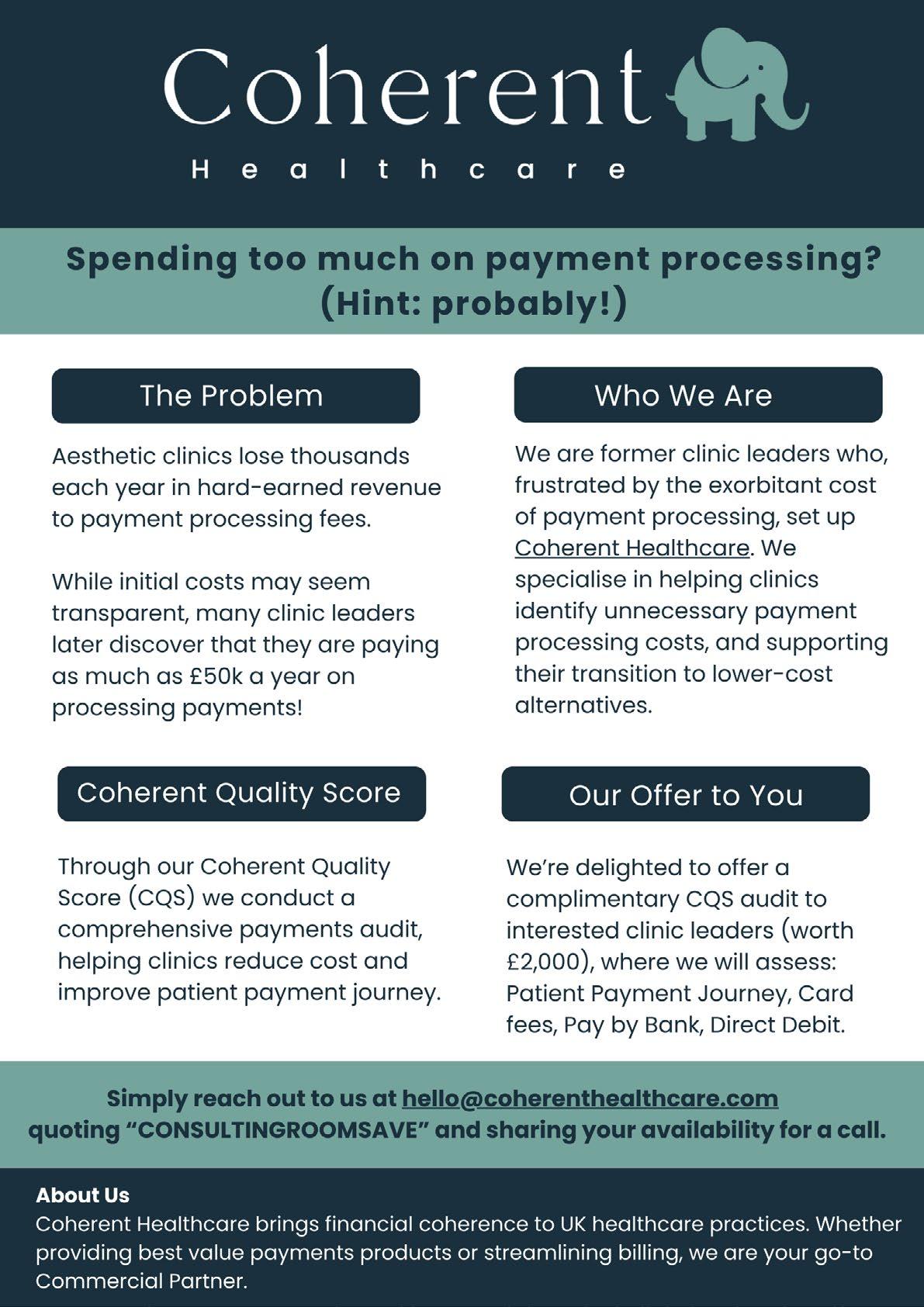
THE PERSONAL TOUCH
Why personalisation is the future
TECHNOLOGY
Digital skin health solutions
CPD
How to say no to patients

COMBINATION TREATMENTS
For weight loss-related laxity



THE PERSONAL TOUCH
Why personalisation is the future
TECHNOLOGY
Digital skin health solutions
CPD
How to say no to patients

COMBINATION TREATMENTS
For weight loss-related laxity

clinical studies

no lasers no needles, no risks.
VERSATILE APPLICATIONS
Scarring
Stretch marks
Active acne
Fine lines
Rosacea
Pigmentation
Melasma
Blepharoplasty
Dry Eyes
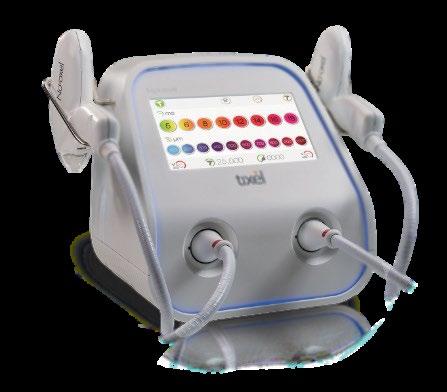
Unique patented TMA® technology
Scientifically validated Proven results
Trusted by clinics Loved by patients
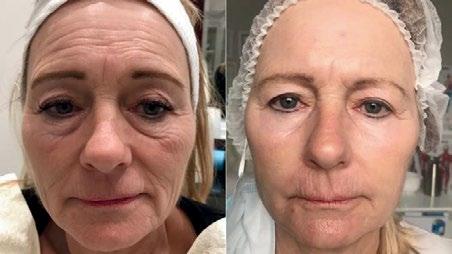



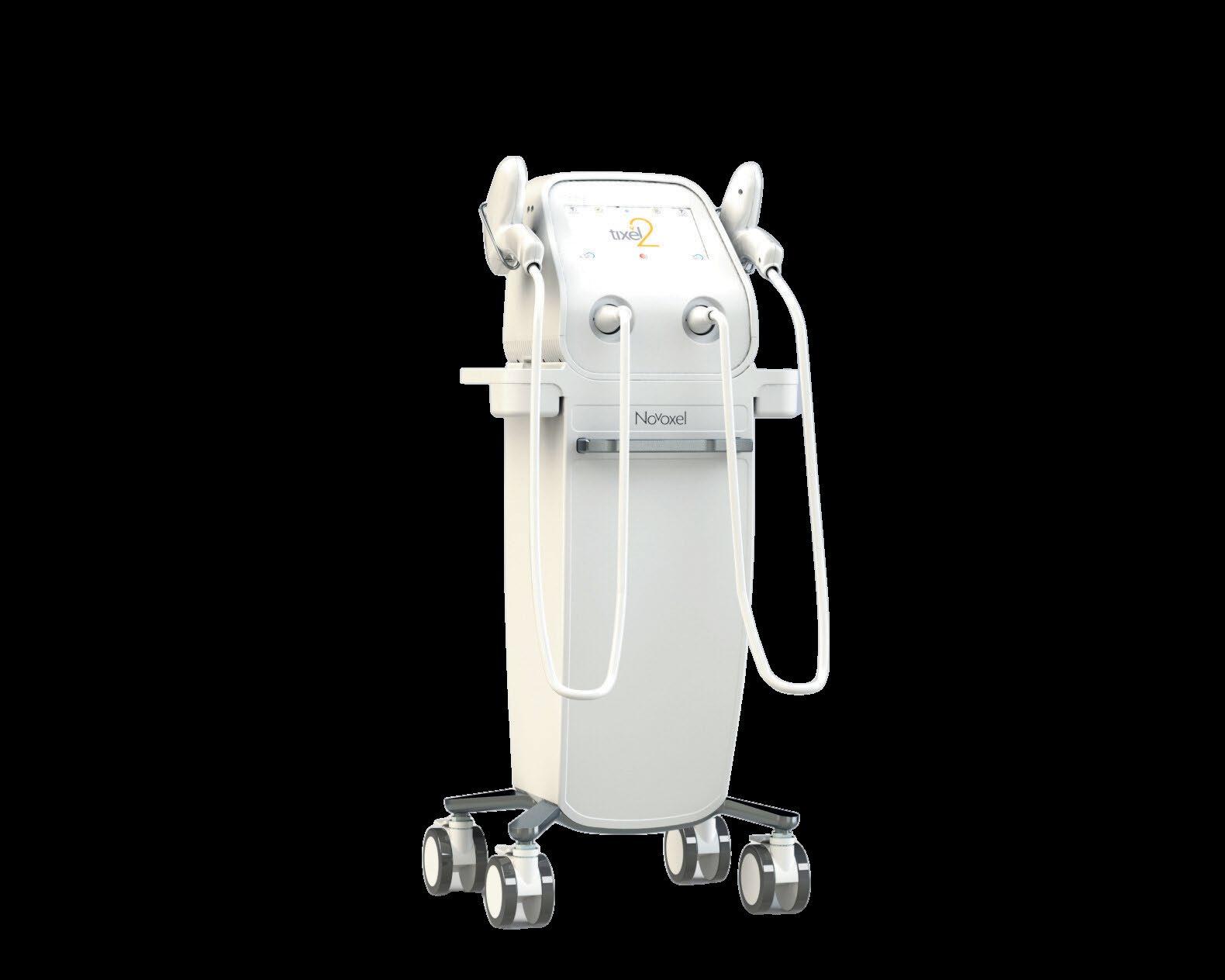




Welcome to the second issue of the Consulting Room Magazine for 2025, focused on “personalisation”.
We are changing things up a bit here at the Consulting Room. From this month, we will be bringing you smaller issues but publishing more regularly. That means the magazine will be dropping into your inbox every six weeks rather than quarterly.
Our themes for the rest of the year will include innovations in injectables, combination treatments, lasers and lights, biohacking and
This issue is the first of our more “bite-sized” editions but it’s still packed with great content including articles by Piroska Cavell (p1617) and Elisabeth Philip (p22-23) on personalisation and why it matters; an update from the JCCP about the NMC’s latest guidance on remote prescribing (p12) and our CPD article on how to say “no”, written by Julie Scott (p25-27).
As well as this, we look at the latest statistics on men’s aesthetics in our what’s trending feature (p6) and bring you insights into how to
We always welcome your feedback, so let us know what you think of our new format and don’t forget to check out our recently launched



A practitioner’s guide to the art of saying no by Julie Scott, RGN NIP PGDip(Aes).

Piroska Cavell on why personalisation should be the cornerstone of all medicine.

PERSONALISED SKINCARE: COMPOUNDED MEDICATION AND CONFIDENCE
Compounded medication can give patients a alternative route to skin confidence, writes Elizabeth Philp.

Donna Ofsofke on how aesthetic clinics are overlooking their CRM goldmine.


Scottish Government confirms bill to regulate non-surgical cosmetic procedures.
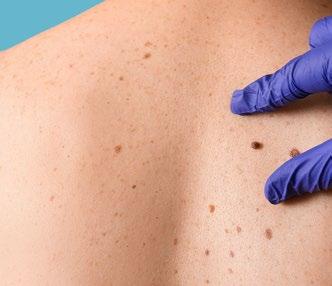
Consultant dermatologist, Dr Toby Nelson, on why aesthetic clinics and medics must embrace digital skin health solutions now.
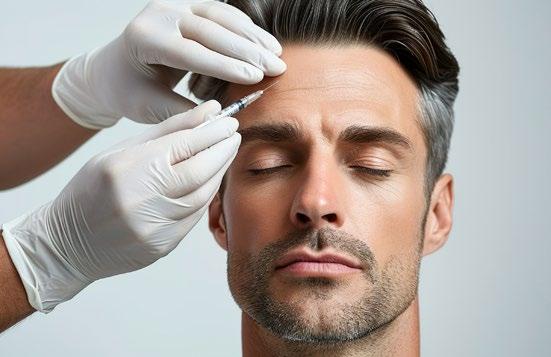
Once stereotyped as a female-dominated industry, male patients now represent 13.5% of the global dermal filler market. In a UK-based male study, Teoxane found that one in six men have looked into dermal filler treatment, and 21% of men said they are likely to have dermal filler in the future.
The UK’s largest and longest running aesthetic industry information website and business portal. Consultingroom.com Ltd
E: admin@consultingroom.com
© Copyright 2018-2022 Consulting Room
Material may not be republished or reproduced in any form which removes attribution to Consulting Room, without the publisher's written permission. Press clippings can be obtained from the Editor. The publishers accept no responsibility for the information transmitted by contributors or advertisers through publication in the Consulting Room magazine. Inclusion of advertisements does not imply endorsement of the products or services advertised. The Editor's decision is final in all matters.
Published by Consultingroom.com Ltd, registered as a limited company in England; No. 4617405.

Advertising & Memberships
Dan Huxley | Sales Manager
E: admin@consultingroom.com
T: 01244 346 569
Marketing & Supplier Relations
Danielle Lowe | Marketing Manager
E: danielle@consultingroom.co.uk
Customer Support & Subscriptions
Membership Support Team
E: admin@consultingroom.com
E: craig@consultingroom.co.uk
Recruitment
Sabrina Haynes | Recruitment Specialist
E: sabrina@consultingroom.co.uk
T: 07734 203 105
Editor
Content Manager





Dr Nelson is the Co-founder and Chief Medical Officer of Map My Mole, a telehealth platform that brings expert dermatologists directly to clinics. He qualified from Guys, Kings, and St. Thomas’ School of Medicine in 2007 with first-class honors and became and a Consultant Dermatologist in 2017.

Julie is an NMC registered Independent Nurse Prescriber, aesthetic injector, and trainer with over 30 years of experience in the field of plastics and skin rejuvenation. She is a mentor, international speaker and presenter on soft tissue fillers who is also a KOL for several leading aesthetic brands.
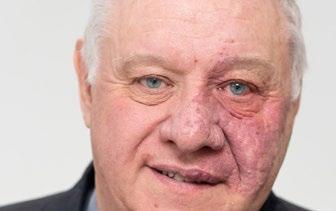
Professor Sines has been the Independent Executive Chair and Registrar of the Joint Council for Cosmetic Practitioners in 2016, following an appointment with Health Education England, where he led the national review on education and training standards for the non-surgical sector.

Elizabeth Philp is the CEO and CoFounder of Roseway Labs, a leading private compounding pharmacy she was inspired to create with her Co-Founder and Superintendent Pharmacist Miriam Martinez Callejas in 2018.
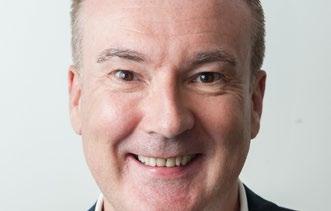
Gary is the founder and CEO of 5 Squirrels, which helps skincare professionals launch their own brand skincare products. Gary is also a consultant to the Society of Cosmetic Scientists, which promotes education and research to advance the science of cosmetics.
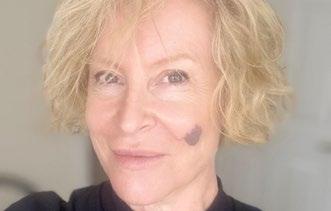
Piroska has an MSc in Cosmetic Medicine with an interest in tackling facial disfigurement due to injury, illness or surgery with the combination of treatment modalities. She also holds qualifications in obesity and weight management, prescribing and hormone health.
Vicky is an award-winning journalist and editor who has specialised in aesthetics for more than 20 years. She is founding editor of Aesthetic Medicine and edited five supplements for The Times. In 2015, she won a Safety in Beauty Award for supporting standards within the industry.

Donna is the founder of AesthetiCore and the author of Doctors Can’t Sell. A qualified laser and skin specialist, Donna brings over 20 years of frontline experience in aesthetics, including clinic ownership, clinical education, and medical device distribution across the UK, Europe, and the US.
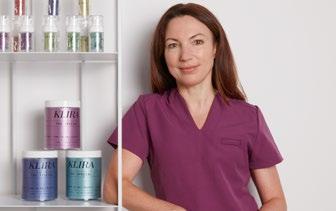
Dr Emma Craythorne is a Consultant Dermatologist, Trustee for the Cosmetic Practice Standards Authority and exPresident of the British Cosmetic Dermatology Group. Dr Emma is well known for her TV series – The Bad Skin Clinic – her renowned private practice, and NHS work.
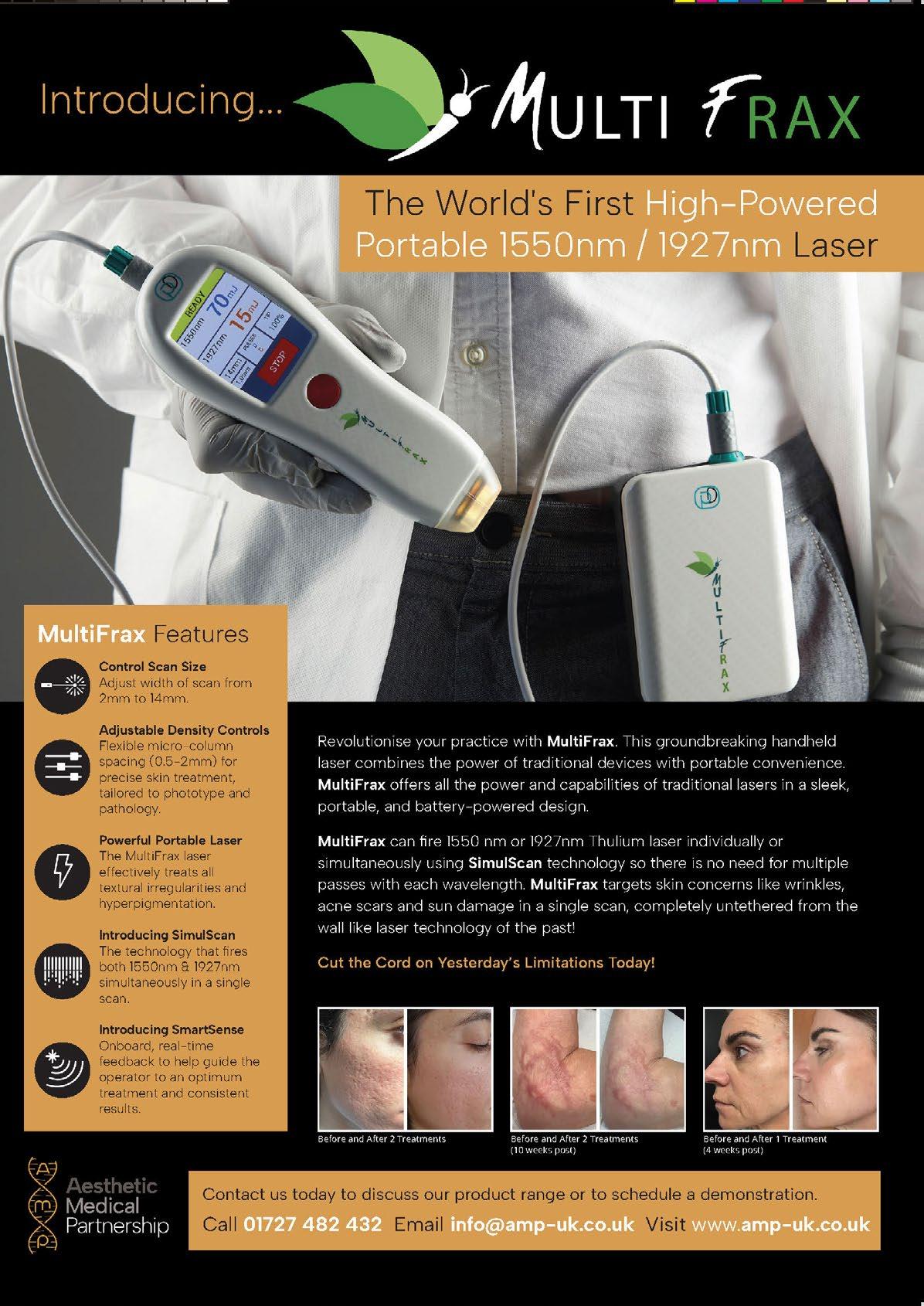
Once stereotyped as a female-dominated industry, male patients now represent 13.5% of the global dermal filler market. In a UKbased male study, Teoxane found that one in six men have looked into dermal filler treatment, and 21% of men said they are likely to have dermal filler in the future.
Jamie Amphlett, Teoxane practitioner and finalist for ‘Best at Male Aesthetics’, says that up to 70-80% of his clinic’s patients are now male, marking a clear change in attitudes towards male grooming and self-care.
Jamie says, “When aesthetics practitioners first entered the industry, their patient base was overwhelmingly female. But in recent years, more men have started booking treatments. Most are seeking natural enhancements rather than dramatic changes. Social media has played a huge role in this shift, highlighting male grooming trends and breaking down outdated stigmas around men taking care of their appearance. Despite this progress, there is still a noticeable difference in how men approach aesthetics. Unlike women, who often discuss treatments openly, men tend to keep their procedures more private. This means that word-ofmouth referrals, a key driver in the industry, are less common. However, targeted marketing, including a shift in branding on social media to cater to male audiences, has helped encourage more men to take the plunge.”
Teoxane’s male study supports this sentiment, with 52% of men saying they found their aesthetic practitioner through social media.
Jamie continues, “One of the most requested treatments among men is jawline enhancement using dermal fillers. A sharp, defined jawline has become a hallmark of masculinity, with celebrities like Henry Cavill and Shawn Mendes often cited as reference points in my clinic. Some men come in with a clear idea of what they want, while others simply ask to look fresher and more rested. In recent years, there has also been a growing demand for subtle lip enhancements, a trend that might surprise many. Contrary to the stereotype of exaggerated lips, men often opt for slight tweaks to correct asymmetry or add hydration to create a balanced, natural look.”
Dr Kam Lally, agrees: “For many men, the idea of using dermal fillers can be daunting, with concerns about maintaining a masculine appearance and avoiding a feminised look. A thorough consultation with a skilled medical practitioner can alleviate these fears and ensure satisfaction with the results. During the consultation, the practitioner assesses the individual’s facial structure and discusses specific goals. This personalised approach helps to tailor the treatment, focusing on enhancing masculine


features such as the jawline, chin, and cheekbones.”
One of the key concerns for male patients is ensuring results look natural. The phrase “Undetectable Injectables” has become a popular term in aesthetics in 2025 and depicts the subtle enhancements that make people look refreshed without obvious signs of work. The goal is for friends and colleagues to notice a positive change, without pinpointing exactly what has been done.” This is why choosing the right practitioner and product is so important when considering starting your treatment journey. In my clinic, I only use Teoxane. Teoxane’s dermal fillers, designed with cutting-edge RHA (Resilient Hyaluronic Acid) technology, integrate seamlessly into facial tissue, ensuring a natural look and feel. They are particularly effective for men, as they mimic the skin’s natural movement, preventing the ‘overfilled’ look that many are keen to avoid.”
Jamie adds, “Men who are new to fillers often worry about the process, but it’s surprisingly quick and straightforward. A typical appointment includes a full consultation with facial analysis and treatment planning, followed by a discussion of risks, benefits, and expected longevity. To ensure comfort, numbing cream is applied before the precise placement of Teoxane filler, often using a blunt cannula to minimise bruising. Gentle massage helps distribute the product evenly, and a review appointment is scheduled two to three weeks later to assess the final result. One of the major benefits of dermal fillers is that there is virtually no downtime. Some mild swelling or bruising may occur, but most men return to their routine the same or the next day.”
Jamie ends by saying: “Despite progress, there is still work to be done in normalising male aesthetics. The outdated perception that aesthetic treatments are only for women is gradually shifting, but more awareness is needed to make men feel comfortable seeking treatments without judgment. As social media continues to highlight male self-care and aesthetics, it’s likely we’ll see even more men embracing injectables as part of their grooming routine.”


Neauvia PEG-HA Fillers are based on a unique Smart Crosslinking Technology - SXT - combining HA and PEG. This gives outstanding mechanical, rheological and thermodynamic properties to the Neauvia’s portfolio, ensuring a high safety profile and tolerability Thanks to these unique properties, they can be perfectly associated with Neauvia Energy-Based Devices and Neauvia Aesthetic Cosmeceuticals, resulting in improved clinical results through synergistic effects and enhanced aesthetic outcomes 1,2,3,4
neauvia.uk | info@neauvia.uk | 07570


The Nursing and Midwifery Council (NMC) has announced a significant change to its prescribing guidelines, mandating that all nurse and midwife prescribers must conduct face-to-face consultations before prescribing non-surgical cosmetic medicines, including anti-wrinkle injections and aesthetic emergency medications.
The updated guidance, which takes effect on June 1, 2025, is designed to strengthen patient safety and ensure consistent, high-quality care across the aesthetics sector. The NMC’s decision follows comprehensive research and consultation with professionals and the public, revealing widespread concerns over the risks associated with remote prescribing in the cosmetic industry.
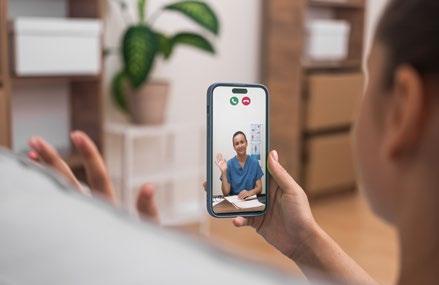
By requiring in-person consultations, the NMC aims to ensure prescribers can carry out thorough clinical assessments, verify the suitability of treatments, and secure fully informed consent.
From June 2025, nurse and midwife prescribers working in aesthetics must:
• Conduct face-to-face assessments before issuing prescriptions for cosmetic medicines
• Provide detailed documentation of the consultation and consent process
• Ensure their practice complies with the revised NMC standards.
Clinic owners and aesthetic businesses employing prescribers are also urged to review and update their operating procedures to reflect the changes.
Andrea Sutcliffe, Chief Executive and Registrar of the NMC, said the changes were a “proportionate and necessary step” to improve safety and uphold the integrity of nursing and midwifery practice in aesthetics. She emphasised the regulator’s commitment to protecting the public and supporting professionals in delivering safe and ethical care. For further details on the updated guidance, professionals are encouraged to visit the NMC’s website.
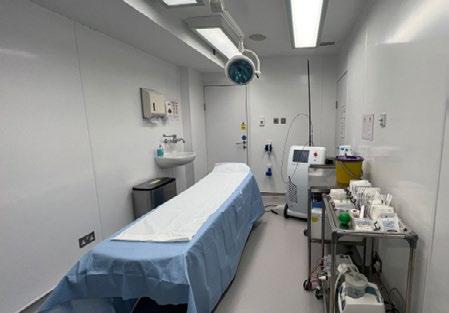
EF MEDISPA has announced the availability of a fully fitted, CQC-registered surgical suite for exclusive rental or potential partnership opportunities at its prestigious Kensington Clinic.
The surgical suite spans approximately 200 square feet and includes both clean and dirty rooms, as well as a dedicated recovery room. It is located in the basement of the clinic, with access to a shared reception and waiting area on the ground floor. Consulting rooms on the ground and mezzanine floors are also available, subject to booking and availability. Rental is flexible – available for either exclusive sessions or shared usage with long-term commitment. The suite is fully fitted and ready for immediate use.
The clinic holds CQC registration for day-use procedures involving minor surgery under twilight sedation. Overnight procedures and general anaesthesia are not permitted. Practitioners must operate under their own registration and insurance and are expected to provide their own support staff, including nursing and anaesthesia professionals.
EF MEDISPA welcomes inquiries from licensed doctors, aesthetic practitioners, dermatologists, and other medical professionals within the scope of the clinic’s CQC registration. Certain procedures, such as pregnancy terminations and surgeries on minors, are not permitted.
Reception services are from Tuesday to Saturday, 9am to 6pm. The surgical suite would be available outside these hours, without a manned reception. Additional admin or booking support can be arranged to meet the practitioner’s needs. Basic clinic ancillaries such as bed rolls, towels, and gowns are provided.
“We’re also open to discussing partnership models with the right practitioner,” said Esther Fieldgrass, founder of EF MEDISPA. “Our goal is to create a dynamic space that supports innovative, preventative, and integrative approaches to medicine.”
EF MEDISPA is also actively seeking functional medicine doctors to join its network, reflecting a growing demand for preventative health services. For further details or to arrange a viewing, please contact Esther on 07770 785 888 or Esther@efmedispa.com.
Adobe/olga_demina

Brighton-based skincare company 5 Squirrels has been named one of the Sunday Times Best Places to Work 2025, making the prestigious list of top small companies in the UK. The recognition comes with a special honour – the company has also been awarded the Spotlight Award for Best Place to Work for LGBTQIA+ Staff.

The accolade celebrates 5 Squirrels’ inclusive, people-first approach to business. The company, which also empowers healthcare professionals working in aesthetic medicine by enabling them to launch their own brand skincare, has built a culture around collaboration, mutual respect, and forward-thinking values. With a close-knit team of 14, the company, employees enjoy a variety of perks that underscore the company’s commitment to wellbeing and work-life balance, including a four-day working week, their birthday off, and quarterly team-building events such as wine tours and bowling.
Each December, the entire team takes a Christmas trip to Europe, one of many initiatives that help foster a strong sense of community and belonging among staff. In addition to its inclusive workplace culture, 5 Squirrels offers access to mentoring, structured career progression, and a generous parental leave policy.
Founder and CEO Gary Conroy said, “I am so proud of our team for achieving this award and recognition, the team work tirelessly to continually improve, feedback and ensure 5 squir-rels feels like the best place to work, if it doesn’t everyone has a voice to ensure it does, that’s why it works!”

In a landmark move to boost public safety, the UK Government has announced plans to legally protect the professional title “nurse”, making it a criminal offence for individuals to use the term unless they are registered with the Nursing and Midwifery Council (NMC).
This long-awaited decision is a major step forward for professional standards in both healthcare and aesthetics, following sustained calls from the sector and support from organisations such as the British Association of Medical Aesthetic Nurses (BAMAN).
This legal clarification will offer greater protection for patients and support for qualified aesthetic nurses working in a competitive and often unregulated market. It also sends a clear message that titles matter, especially in a sector where trust and professionalism are key to making sure that treatments are delivered safely and ethically.
Until now, anyone could call themselves a “nurse” regardless of qualifications, including those struck off by the Nursing and Midwifery Council (NMC) for serious misconduct or criminal convictions, potentially misleading the public and undermining the standards upheld by trained professionals.
The Scottish Government has piloted an AI tool called ‘Consult’ to analyse public feedback on the regulation of non-surgical cosmetic procedures, such as botulinum toxin and dermal fillers. The tool reviewed over 2,000 responses on topics including the licensing of non-healthcare practitioners, the regulation of higher-risk treatments, and oversight of independent pharmacy services operating outside NHS contracts.
Key themes identified by the AI were verified by government analysts, and the findings will help shape the upcoming Non-Surgical Cosmetic Procedures Bill. The full consultation results are expected to be published by the end of June 2025.
Botox receives MHRA approval for platysma treatment
The UK Medicines and Healthcare products Regulatory Agency (MHRA) has approved Allergan Aesthetics’ Botox (onabotulinumtoxinA) to treat platysma bands. The MHRA approval allows for the temporary improvement in the appearance of moderate to severe platysma prominence. The condition must be observed at maximum muscle contraction and have a significant psychological impact to qualify for treatment. According to the company, this approval marks the first non-surgical neurotoxin treatment in the UK specifically authorised for this indication.
JCCP releases its annual report
The Joint Council for Cosmetic Practitioners (JCCP) has released its 2024/25 Annual Report, highlighting significant progress in enhancing safety and professional standards within the UK’s non-surgical aesthetics sector. Key achievements include strengthening collaborations with government bodies and industry stakeholders to develop clearer regulatory frameworks and expanding its Education & Training Register to uphold rigorous national benchmarks. The report underscores the JCCP’s commitment to fostering a safer, more accountable environment for both practitioners and the public.
Unlock 30+ years of aesthetic industry wisdom with Ron Myers
A new series from Ron Myers, cofounder of The ConsultingRoom, distils his three decades of medicalaesthetics know-how into bite-sized, five-minute video insights. In the latest trilogy of videos, Ron digs into the numbers that shape growth and profitability and explains why running an aesthetic practice today is far more complex than it was 20 years ago. Visit https://ronmyers.co.uk/to learn more.
One in four Brits skip SPF because they don’t like how it feels
A new report from Nivea Sun shows that greasy, sticky or residue-heavy formulas are putting people off sunscreen, with over a quarter (28%) of Brits admitting they’ve skipped SPF because of how it feels. This is despite 69% of respondents saying that texture is the most important factor when choosing a sunscreen.

Wigmore Presents 2025 brought together leading voices in aesthetic medicine for a dynamic three-day event in London this April. Practitioners from across the UK gathered to learn from global experts, refine their skills, and gain practical insights to enhance patient care.
One of the standout sessions, “Consult, Assess, Treat,” featured international injectors devising live treatment plans and sharing their techniques, while attendees compared approaches using interactive facial models. The session sparked debate and offered valuable perspectives on personalised consultation and treatment.
Saturday featured a major highlight – Dr Zein Obagi’s exclusive appearance, alongside ZO Skin Health Chief Scientist Rick Woodin. Together, they unveiled a new product and shared key insights into skin rejuvenation and health, offering attendees a rare learning opportunity.

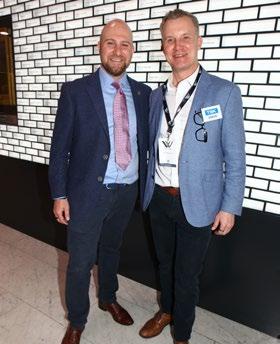
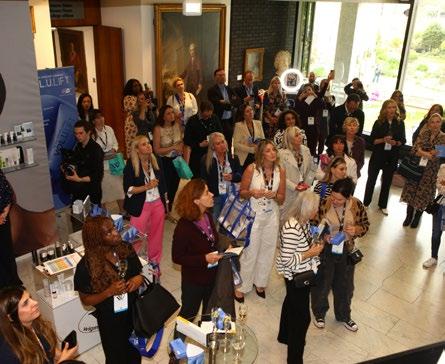
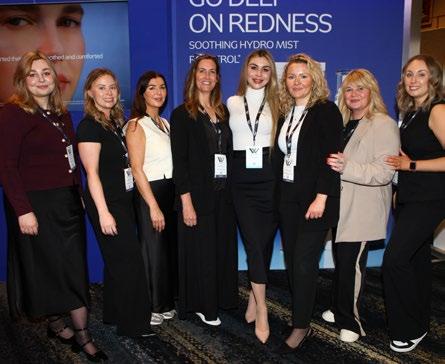
The leading practitioners, products and clinics in medical aesthetics have been chosen at The Aesthetics Awards 2025. More than 100 expert Judges in the aesthetics identified 26 Winners as the best in the UK and Ireland out of 470 entries.
With just under 900 esteemed attendees, the event showcased the pinnacles of excellence within the sector, celebrating best practice, innovation and patient safety.
The evening took place at the prestigious Grosvenor House, Park Lane, and was hosted by Vernon Kay, who has a career spanning more than 20 years in live entertainment, magazine shows, radio and sports broadcasting. More than £8,000 was also raised on the evening for Aesthetics charity partner the BDD Foundation.


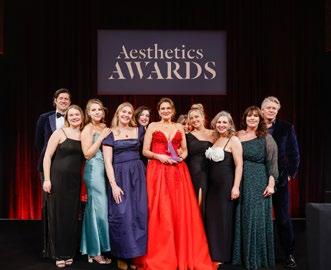

In May, Aesthetic Medicine returned to London Olympia for its eleventh year, drawing 3,167 professionals for two vibrant days of learning, discovery, and connection. Under the theme “Discover the Future of Aesthetics,” the event showcased the latest in treatments, technologies, and trends, with headline sponsor Cutera drawing crowds to their cutting-edge innovations.
Education was central, with packed sessions across multiple stages, including the popular Regenerative Medicine Conference and live injectable demos. Expert-led talks, clinical partnerships, and real-time demonstrations gave delegates valuable insights and practical skills.
Beyond learning, AM London 2025 fostered a strong sense of community. Attendees networked with peers, tested new tech hands-on, and enjoyed exclusive offers from top brands. From exploring new ideas to forming lasting connections, the show proved once again why it’s a must-attend for anyone in aesthetics.



The Royal Lancaster Hotel played host to the 2025 Aesthetic Medicine Awards. Held as part of the Aesthetic Medicine London conference and exhibition, the ceremony spotlighted standout achievements across clinical care, business practice, and professional development.
Winners were chosen through a rigorous two-stage judging process, conducted by a panel of prominent professionals representing various corners of the aesthetics field. The goal: to identify and honour those raising standards and delivering outstanding service and results in the UK aesthetic market.
The Ghanem Clinic emerged as one of the evening’s biggest winners, taking home three top accolades, including Aesthetic Clinic of the Year – London, Aesthetic Practitioner of the Year: Surgeon for founder Mr Ali Ghanem, and the overall title of Aesthetic Clinic of the Year. The clinic’s commitment to clinical excellence and patient care impressed judges across the board. Dr Yusra Clinic also stood out, claiming the award for Aesthetic Clinic of the Year – North of England and Midlands and Clinic Team of the Year, while founder Dr Yusra Al-Mukhtar was the first practitioner to enter the Hall of Fame after winning the title of Aesthetic Practitioner of the Year – Dentist three times.
Other winners included Dr Anna Hemming of Thames Skin Clinic, who was named Aesthetic Practitioner of the Year – Doctor, Alexandra Mills of AM Aesthetics, who was recognised as Aesthetic Nurse Practitioner of the Year, and Zoe Myers from Authentic Aesthetics received the award for Aesthetic Therapist of the Year.
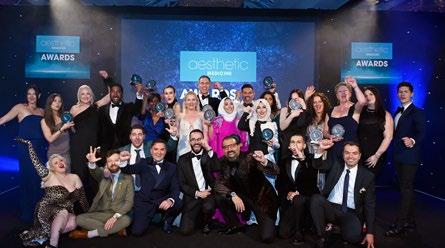

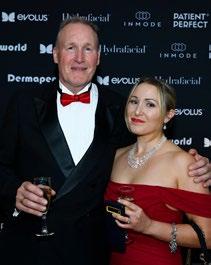



The Joint Council for Cosmetic Practitioners (JCCP) is pleased to share a significant policy update from the Nursing and Midwifery Council (NMC), which will affect prescribing practices within the aesthetics sector. From 1 June 2025, nurse and midwife prescribers will be required to conduct face-to-face consultations before issuing prescriptions for elective non-surgical cosmetic procedures, including certain anti-wrinkle injections and items in aesthetic emergency kits.
This decision represents a vital step in improving patient safety and bringing consistency to the regulation of cosmetic practice. The NMC has acknowledged that remote prescribing for aesthetic treatments can carry significant risks. By requiring in-person assessments, this updated guidance better aligns with other healthcare regulators and reinforces safe prescribing standards across the board.
The JCCP has long urged the UK Government and statutory regulators to prohibit remote prescribing in these contexts, highlighting the potential dangers to patient welfare. In 2022, the JCCP and the Cosmetic Practice Standards Authority (CPSA) released guidance that clearly opposed the remote prescribing of any injectable prescription medicines or medical devices for nonsurgical cosmetic use. This includes, but is not limited to, botulinum toxin, injectable local anaesthetics, dermal fillers, hyaluronidase, tissue stimulants, lipolysis agents, and vitamin injections.
Prescribers are reminded that they must not issue such prescriptions via telephone, video call, online platforms, or thirdparty requests without conducting an in-person consultation. The prescriber remains responsible for the patient’s care, even when procedures are delegated, and must follow all applicable MHRA regulations and regulatory body guidance.
The NMC’s stance aligns with the Royal Pharmaceutical Society’s Prescribing Competency Framework and the High-level principles for good practice in remote consultations and prescribing. Both

stress the importance of comprehensive clinical assessments and prioritising patient safety in all prescribing decisions.
The JCCP further emphasises that these assessments must take place face-to-face and include consideration of the patient’s physical condition, psychological wellbeing, and expectations.
Crucially, an initial in-person consultation is not sufficient to cover all future prescribing decisions. Ongoing treatment must include regular review and shared decision-making. A follow-up face-toface consultation is required, at a minimum, when:
• A new medicine is introduced
• The dosage of an existing prescription is changed
• The patient’s medical history is updated
• An adverse incident has occurred
• More than six months have passed since the last consultation
If a prescriber considers issuing a repeat prescription without a further in-person consultation, they must ensure that none of the above conditions apply and that ap propriate systems are in place to evaluate the patient’s current status.
The JCCP is a registered UK charity focused on promoting patient safety in the cosmetic sector. As the lead body overseeing the Health Education England (HEE) qualifications framework for aesthetics, the JCCP collaborates with professional regulators, membership bodies, and key stakeholders to raise standards and ensure regulatory consistency.
To stay informed about regulatory updates, professional standards, and developments in the aesthetics sector, we encourage all practitioners to register with the JCCP.
To read the full JCCP press release, visit: www.jccp.org.uk/ NewsEvent/nmc-launches-updated-guidance-that-embargosremote-prescribing-for-elective-non-surgical-cosmetic-procedures



The Scottish Government has confirmed the introduction of a Non-surgical Cosmetic Procedures Bill as part of its Year Five Legislative Programme, published in the Programme for Government 2025-26: Building
The Best Future For Scotland. Announced on May 6, the proposed legislation aims to regulate the delivery of certain aesthetic procedures performed for cosmetic or lifestyle purposes, in a bid to improve public safety and industry standards.
The forthcoming Bill will establish legal requirements for certain non-surgical procedures to be carried out in registered premises by practitioners who meet specified standards. It will also set out enforcement measures to ensure service providers comply with these regulations. The legislation is expected to be introduced to the Scottish Parliament before May 2026.
The legislation follows a public consultation held from December 20, 2024 to February 14, 2025, which explored the introduction of a licensing scheme for non-surgical aesthetic procedures. The consultation mirrored a similar initiative previously undertaken in England and sought to categorise cosmetic treatments based on their complexity and associated risk.
The Scottish consultation proposed three procedural groups:
Group 1: Treatments that can be performed in licensed premises or Healthcare Improvement Scotland (HIS)-regulated settings by trained and licensed non-healthcare practitioners. These included:
• Microneedling
Superficial chemical peels
Intense Pulsed Light (IPL)
LED therapy
Tattoo removal lasers
• Laser hair removal
Group 2: Procedures allowed only in HISregulated settings and conducted by non-
healthcare practitioners under the supervision of healthcare professionals. These included:
• Mesotherapy
• Botulinum toxin injections
• Dermal fillers
• Medium-depth peels
• Photorejuvenation
Radiofrequency, HIFU Cryolipolysis
Group 3: High-risk procedures that must be conducted by an appropriate healthcare professional in an HIS-regulated setting. This group encompassed:
• PRP (Platelet-Rich Plasma) injections
• Injection microsclerotherapy
• Injection lipolysis
• Dermal microcoring
• Phenol chemical peels
• Deep laser treatments
• Thread lifts
• Electrocautery, cryotherapy, and carboxytherapy
Any group 1 or 2 procedure performed on intimate areas (excluding tattooing and piercing)
The consultation results have yet to determine which treatments will officially fall into each group once the Bill is enacted.
The Scottish Government’s move signals a growing recognition of the need to regulate an industry that has, until now, operated with minimal oversight in many areas. By introducing the Non-surgical Cosmetic Procedures Bill, the government aims to safeguard individuals undergoing aesthetic treatments while ensuring providers meet rigorous and enforceable quality standards.
Further details, including the final classification of procedures and the scope of the Bill, will be released as it progresses through Parliament.
To read the full Programme for Government 2025-26: Building The Best Future For Scotland, visit the official Scottish Government website: https://www.gov.scot/



Piroska Cavell on why personalisation should be the cornerstone of all medicine
Personalisation is something I believe should form the key component of all branches of medicine – whether that’s formal clinical care, lifestyle interventions, or aesthetics. It has always seemed nonsensical to me that generic treatment pathways are still widely applied when every human body is biologically, emotionally, and genetically unique.
How does this relate to aesthetics and lifestyle medicine?
We often speak of the fusion of science and artistry in aesthetic practice. Great outcomes hinge on anatomical precision and an appreciation of each individual’s distinct structure, needs, and goals. And yet, all too often, practitioners are trained using ‘standard’ patterns of treatment – standard doses, standard injection points, and standard protocols. For less experienced clinicians, this can lead to disappointing outcomes and frustrated patients.
Worse still, some business models actively encourage this cookie-cutter approach, prioritising volume and profitability over quality and ethics.
I would argue this undermines best practice and erodes trust, especially in a field where the practitioner’s reputation is everything.
In contrast, personalised aesthetic treatment unlocks both better results and deeper patient satisfaction. Consider:
• Injectables: Muscle movement, facial symmetry, skin thickness, and agerelated changes differ from person to person. A templated approach to Botox or fillers often yields unnatural results, while tailored techniques create balance, subtlety, and harmony.
• Skincare regimens: Personalised plans using medical-grade skincare take into account the patient’s skin

type, history, sensitivities, and goals, rather than promoting a one-size-fitsall ‘kit.’
• Ethnic and cultural considerations: For instance, darker skin tones need special consideration with lasers or resurfacing to avoid hyperpigmentation – nuance a generic protocol won’t catch.
Personalisation is not about complexity for complexity’s sake, it’s about precision, intention, and care. In lifestyle medicine, the stakes are even higher.
Many practitioners are now integrating lifestyle medicine into their offering – particularly in areas like weight management, hormone balancing, and
metabolic health. Here, personalisation is not just preferable, it’s essential. To ignore an individual’s unique physiology, environment, and mindset is to risk not just ineffective care but potential harm.
Examples abound:
• Weight loss: What works for one person – say, intermittent fasting –might be detrimental for another with adrenal fatigue or a history of disordered eating.
• Hormonal care: Women in perimenopause, for example, may have wildly different symptoms, lab results, and tolerances. Bioidentical hormone therapy must be nuanced, not protocol-driven.
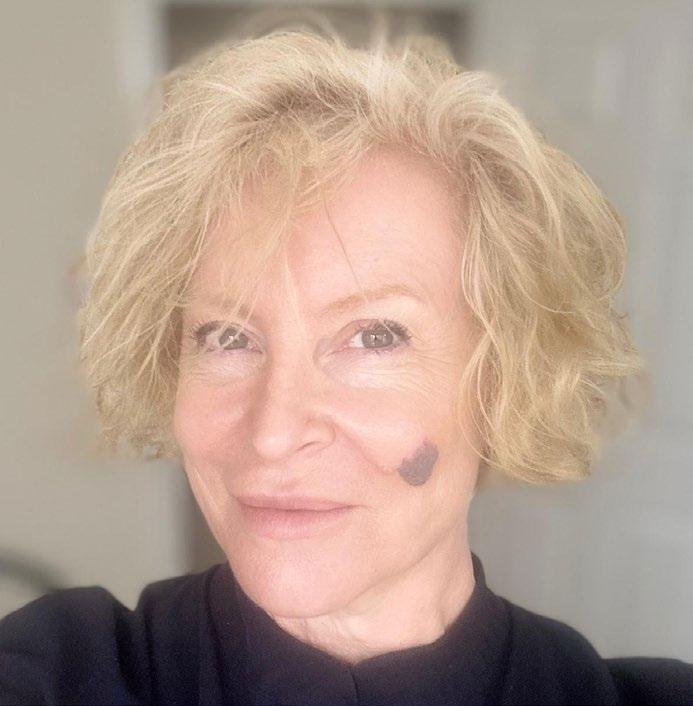

• Nutritional strategies: A busy working parent may benefit from small, sustainable changes, whereas another person may be ready for a radical reset.
• Behaviour change: The cornerstone of lifestyle medicine requires deeply personalised support. There’s no generic prescription for motivation, mindset, or emotional barriers.
Of course, within mainstream medicine, there must be guidelines, and yes, there are budgetary and systemic constraints. But somewhere along the way, we lost the skill – and the permission, to listen. Too often, test results that fall ‘within the normal range’ are used to dismiss patients who feel persistently unwell. Their interoception – their own internal radar –tells them something is wrong, but they’re asked to ignore it.
As a former midwife, I honed the art of truly
listening to patients. Midwifery teaches you that signs of change, distress, or danger don’t always conform to textbook presentations. Pregnant people often know something’s happening long before objective signs appear. That same listening, validating, and responsive approach should extend across all disciplines.
Patients thrive when they feel seen, heard, and understood. At Sese, we believe passionately that consultations cannot be rushed, and treatment planning cannot be templated.
Creating a plan for someone’s skin, health, or body involves layers of assessment – medical, emotional, hormonal, environmental. Taking that time reinforces to the patient that we see them, not just a symptom or aesthetic goal.
Working in the private sector gives us powerful tools – access to compounding
pharmacies, integrative testing, and a broad range of treatment modalities. We can personalise skincare, supplementation, hormones, nutrition, and more. And yes, with this comes responsibility. But with the right training and support, that responsibility is a privilege.
The opportunity is here. The tools are here. And the evidence overwhelmingly supports it.
Personalised care is ethical, effective and essential
I passionately believe our patients deserve nothing less. Personalisation isn’t a luxury add-on; it is the gold standard. Personalised care leads to better outcomes, trust, and deeper healing, whether in aesthetics, lifestyle medicine, or mainstream healthcare.
Let’s move away from standardised, impersonal protocols towards the norm of working with human complexity is meeting it with human-centred care.











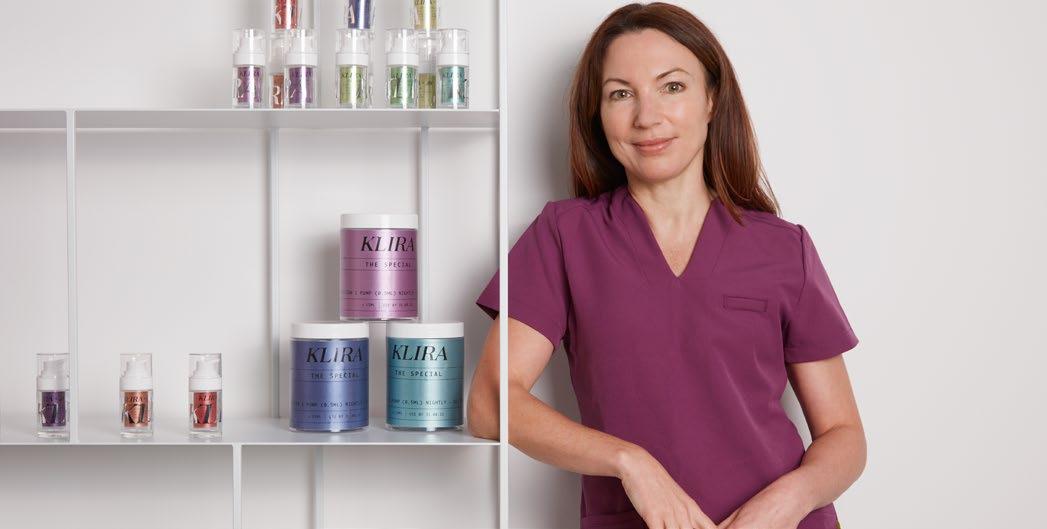
Dr Emma Craythorne, a leading consultant dermatologist and founder of Klira, explains why personalisation isn’t just a trend, it’s the futur e of dermatology
Skincare is one of the pillars of a successful aesthetic practice. Not only does it support procedures performed in clinic, but evidence-based and medical-grade skincare is a powerful tool in its own right for tackling agerelated concerns and managing and treating skin conditions.
In Hamilton Fraser’s annual survey, skincare was cited as the second most common service practitioners offer after injectables, with 56.9% saying they sell it. Add to this the fact that consumers are increasingly seeking products and services tailored to their unique needs and preferences, and it is no surprise that a recent report by Future Market Insights valued the global customised skincare market at $29.3 billion (a figure it forecasts will grow to $62.4 billion by 2034).
Someone who has been ahead of the curve when it comes to catering for this demand is Dr Emma Craythorne, a consultant dermatologist and the
founder of Klira, a bespoke prescription skincare brand. We caught up with her to find out more.
Consulting Room: What do we mean when we talk about personalisation?
Dr Emma Craythorne: From a dermatology perspective, personalisation means truly understanding the skin of the person in front of you, not comparing it to anyone else. Everyone’s skin is unique. It’s shaped not just by genetics, but by epigenetics too – your lifestyle, diet, and everything your skin has been through. That’s why even identical twins might need different treatments.
In medicine, and dermatology in particular, we’re now able to look at how a person’s genes influence their response to treatments. For conditions like psoriasis, for example, certain medications will work better or more safely depending on your genetic
makeup. The same goes for topicals –and that’s exactly what we do at Klira. We look at both genetics and life history to create skincare that’s truly tailored to you.
CR: You are a practising physician, running your own clinic, what inspired you to go on to develop a personalised skincare range?
EC: There were two big reasons, really. First, in clinic I kept seeing people who were confused by skincare marketing. They were buying products that promised to fix wrinkles or pigmentation, but most of them weren’t personalised, and often didn’t even contain the actives needed to make a real difference. I wanted to bring proper, evidence-based formulations – like we use in dermatology – to more people.
Second, I started noticing how much waste there was. People were buying into trends, trying a product once, then

then leaving it in a drawer or throwing it away. It felt like there had to be a better way, something simpler, more effective, and better for the planet.
That’s what drove Klira: personalised treatments based on real science, not hype. So people aren’t buying ‘hope in a jar’, the y’re getting real, clinically backed solutions that actually work.
CR: You’ve got this 51-question SkinSize analysis. Tell me a little bit more about this, and how does that help you make things super personalised?
EC: The SkinSize analysis helps you look at your skin the way a dermatologist would. It focuses on four key areas: your skin barrier, sebum production, fibroblast activity, and melanocyte function.
We ask things like: Do you have a strong or sensitive skin barrier? Is your skin oily or dry? How well are your fibroblasts working? Do you need collagen-boosting ingredients or more protection? And how does your skin deal with pigment? Are you prone to dark spots, or do you get redness that lingers?
The answers help us build a clear picture of how your skin functions, so we can tailor your treatment in a really precise way.
CR: How does Klira work? Do consumers just do it themselves online or is it through a clinic?
EC: There are two arms to Klira. The first is where people complete our 51-question SkinSize analysis and upload photos online – it ’s built to replace the in-person consultation, and we’ve tested i t extensively across different communities. The second is in clinic settings, where trained professionals can make the decision directly, so the questionnaire isn’t needed there.
There’s even a middle ground; some clinics or salons stock Klir a but aren’t medically qualified to assess skin, so their clients can go online and complete the questionnaire themselves.
Klira focuses solely on the nighttime serum. For the rest of the routine – cleanser, SPF, moisturiser – we give recommendations based on your skin type. Most are affordable and easy to find. It just helps take the guesswork out of finding the right products.
CR: What do you think the main advantage for clinicians is in terms of taking a more personalised approach with their patients?
EC: The biggest benefit for clinicians is that patients feel really special – they’re getting something made just for them. It’s no t the same as what their friend or the person before them in the clinic is using. And because it’s tailored, they tend to get better resul ts and stick to the treatment more easily.
With Klira, there’s no complicated routine – just two pumps eve ry night. Behind the scenes, the formula adjusts every month based on the season and skin progress. In winter, for example, we might add more ceramides.
Patients love that it’s made fresh for them in the lab and arri ves within 48 hours. It’s low on preservatives, high on personalisa tion –and that feels really special. That’s why they come back.
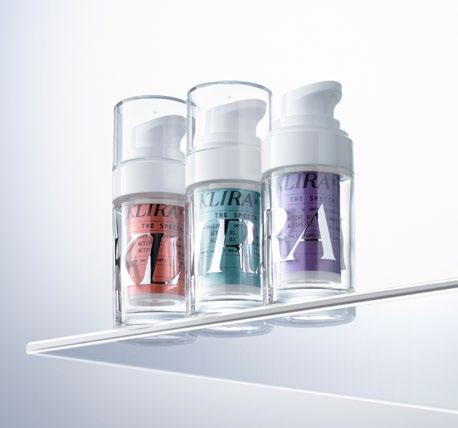
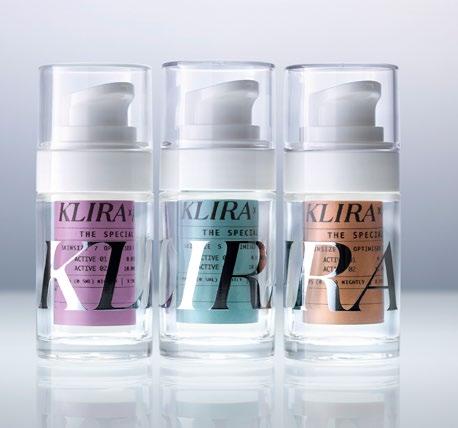
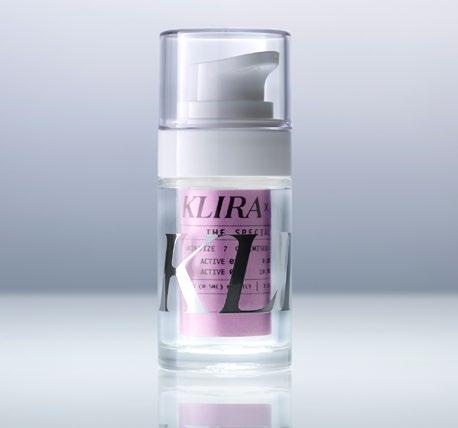




Summer weather and social media trends are intensifying pressure on UK adults with a skin condition, finds new Roseway Labs research, but compounded medication can give patients a alternative route to skin confidence, writes Elizabeth Philp, CEO and Co-Founder, Roseway Labs
As the days grow longer and temperatures rise, many welcome the start of summer. But for millions with skin conditions, the season brings new pressures, with heat, sun and allergens fuelling flare-ups and undermining summer confidence.
We surveyed 2,000 UK adults living with a skin condition – including psoriasis, eczema or rosacea – and found 76% feel more anxious about their skin in summer.
Our research also revealed that 77% –around 27 million Brits – feel that viral social media trends, such as the Korean beauty ideal of ‘glass-like skin’, have heightened pressure to achieve flawless skin.
This was even more apparent among younger generations, with 85% of millennials and 93% of Gen Z respondents feeling impacted, rising to 94% among female Gen Z, highlighting a particularly strong influence on young


women. Worryingly, 79% of adults with a current skin condition said they had tried off-the-shelf or GP-prescribed treatments that proved ineffective.
Unlike standard skincare treatments, compounded medication – such as creams, ointments or gels – is custommade to suit an individual’s needs, helping to manage seasonal flare-ups and support greater confidence in their skin.
At Roseway Labs, we work closely with private prescribers and dermatologists to create compounded formulations for a range of skin conditions, including acne, disseminated superficial actinic porokeratosis (DSAP), hyperpigmentation, psoriasis, eczema, rosacea and scarring.
This personalised approach means treatments are tailored to a patient’s specific skin type, needs, and sensitivities – including allergies. Compounded medication allows us to
create formulations containing only the necessary active ingredients while excluding those commonly found in standard treatments that could trigger adverse reactions.
By reducing the risk of unwanted side effects, personalised skincare makes it easier for patients to stay on track with treatment plans and experience more effective, lasting relief.
Many people with a skin condition wait years – sometimes decades – for an accurate diagnosis, often experiencing ongoing discomfort and growing frustration.
When treatments then fail to work, it’s not only physical symptoms that persist – the emotional toll of disappointment and diminished confidence can deepen too.
Everyone deserves to feel comfortable in their own skin and enjoy a good quality of life. Greater access to personalised, compounded treatments can have a life-changing impact –

reducing anxiety, easing symptoms, and allowing patients to focus more on what they love.
One skin condition that often worsens in summer is disseminated superficial actinic porokeratosis (DSAP), which can cause light sensitivity, itchiness, and visible lesions.
One of our patients, Bridie Hill, a retiree and grandmother from Merseyside lived with DSAP symptoms for decades, often dismissed or misdiagnosed with eczema and psoriasis.
After starting on a compounded cream tailored to her needs just a month ago, she has already noticed a significant improvement – with her previously flared, scaly skin on arms and legs becoming calmer and smoother. While the British Association of Dermatologists notes that there is no cure for DSAP, Bridie’s personalised cream has helped lighten the appearance of her lesions, making them easier to conceal and improving her comfort and confidence.
Similarly, 49-year-old Kirsty Robertson also struggled for years before receiving a correct diagnosis. She was initially advised to avoid the sun entirely, leading her to constantly cover up and even carry an umbrella on sunny days to feel secure. Before finding treatment at Roseway Labs, she tried a range of ineffective over-the-counter remedies, including wart treatments aimed at freezing off lesions. Kirsty describes her compounded treatment as transformative, helping her regain both physical comfort and emotional ease.
Currently, compounded medication in the UK is accessed via a private doctor’s prescription. As we continue to see the difference personalised treatments can make – easing symptoms and restoring confidence in patients with conditions like acne, eczema, psoriasis and more – it’s clear that greater awareness and wider access are crucial.
At Roseway Labs, we are committed to expanding access to compounded
medication, working closely with dermatologists and private prescribers across the UK.
But compounded treatments are not just limited to dermatology. We also offer personalised options in areas such as women’s and men’s health, haircare, gut health, sleep, longevity, wellness and more – providing patients tailored support across every aspect of their health journey.
Personalised medicine is already transforming outcomes for people of all ages and genders – offering more effective solutions, rebuilding confidence, and improving quality of life. As compounding becomes better understood and more accessible, we hope even more patients will come to us to experience the powerful difference it can make.
The research was conducted by Opinion Matters on behalf of Roseway Labs among a sample of 2,000 UK adults with a current skin condition between 21.03.25 and 25.03.25.

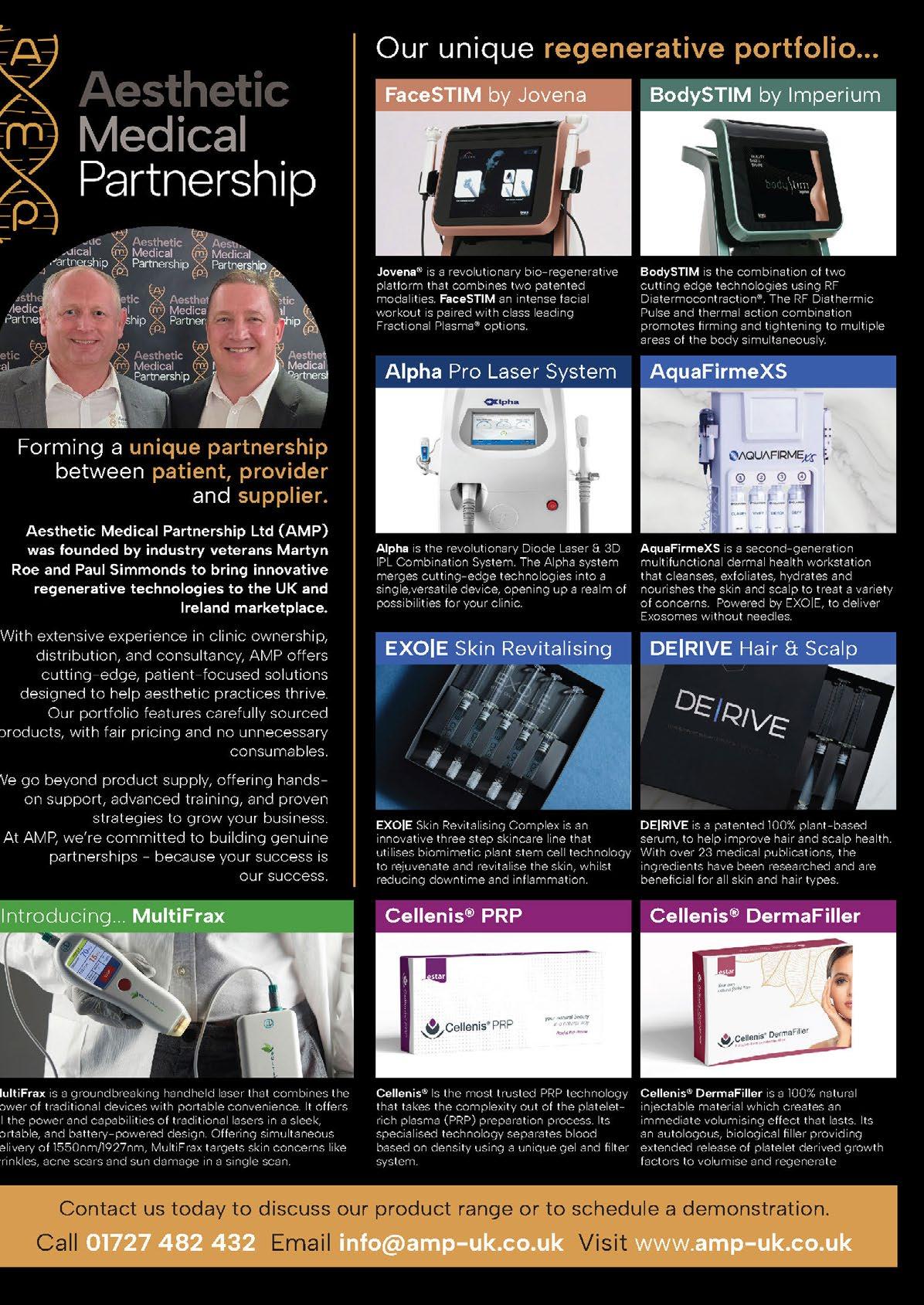

Adobe/Kirsten D/peopleimages.com
A practitioner’s guide to the art of saying no by Julie Scott, RGN NIP PGDip(Aes)
Introduction
Sleepless nights worrying about dissatisfied, disappointed patients – their unrealistic expectations; manipulative behaviour; the threat they might leave a negative review; the worst-case scenario that they might experience a complication. These are all real concerns we face as practitioners, all things that could happen if we say yes when we should have said no. By developing the skills to know when a patient needs to hear ‘no’ and to deliver it with care, we can prioritise patient safety and well-being in every decision whilst concurrently protecting ourselves.
Saying no is not a simple refusal to treat. Instead, saying no should be viewed as an art which requires empathy and clear communication, underlined with respect and professionalism. This is a challenging feat, as an amalgamation of challenges make saying no a difficult conversation to have. Ultimately, everything boils down to safety versus satisfaction in a manifestation of carefully balancing meeting patients’ wants and needs whilst always putting safety first.
Though it is tough, the importance of saying no cannot be understated. Rooted in ethical responsibility and patient care, it builds trust and protects patient health. While it can at first feel as though you are letting your patient down, saying no is an essential component in maintaining the integrity of care and demonstrates professional maturity. Still, it is vital to have a solid understanding of when you should consider saying no, so let us dive into some examples.

1. Patient selection
Patient care starts before treatment. Keep an eye out for patients who arrive at their consultation full of unrealistic expectations and misinformation, perhaps cultivated from social media, as well as patients who are seeking unnatural results. These can all be indicators for a high-risk patient who may be chasing extreme or damaging outcomes they have identified from unqualified sources.
2. Mental health concerns
It can be difficult to distinguish between normal dissatisfaction and mental health disorders in patients who focus on minor flaws and experience a sense of emotional distress from their appearance. However, it is crucial to remember that as aesthetic healthcare professionals it is not our job to diagnose. Instead, take these signs into account when deciding if treatment could deepen the patient’s obsession and increase their distress before going ahead with treatment.
3. Medical contraindications
Any health conditions which may increase the risk of procedures, ranging from issues like clotting disorders which may lead to serious complications, to active infections which could worsen with treatment, should be acknowledged and reflected in the patient’s treatment plan. If in doubt, always get clearance from a GP or consultant.
4. Practitioner-shopping patients
Patients who hop between different clinics are likely to prioritise cost over quality and safety, often making misguided decisions and setting unrealistic goals. As a result, they are likely to be dissatisfied with the outcome of their treatment. This approach to aesthetic treatments neither benefits the patient nor the practitioner.
5. Gut feeling
Sometimes our instincts may flag that something about a patient is somehow off; it is important that as practitioners we give importance to that feeling. Overly demanding patients are prime candidates for dissatisfaction, while over-anxious patients or those suffering from depression may complicate their treatment and recovery, while narcissistic patients’ unrealistic expectations are often backed up with a lack of empathy. As a practitioner, you have the discretion to not treat anyone who undermines your trust and communication and should exercise this when necessary.
While the patient is selecting you by choosing to book with your clinic, how far down the patient journey you take the patient remains under your control. For example, at consultation you can tailor their treatment plan to their unique circumstances and desires to foster mutual trust and understanding. The subsequent cool-off period then serves you and the patient, giving both parties time to identify any concerns and reflect on possible risks.
The pressure to say yes can feel omnipresent - patients have an expectation that the practitioner will want to treat them and a general desire to please can make it difficult to say no out of concern for losing the patient or your reputation. In order to overcome these challenges, it is critical to acknowledge the limit of care you can offer.
You can set the tone for saying no before the patient even arrives at your clinic. Generating a balanced online presence in which you manage reviews and expectations while staying true to ethical principles helps your patients develop realistic goals during the research stage of their journey.
To avoid being coerced in a situation where saying no is the right option, trust that gut feeling and your judgement to set boundaries which prioritise ethics. Confidence is key, but it can also be hard to hold onto. If a patient has wants and needs which are especially difficult to balance, reach out to your peers for support. The weight of saying no is heavy; as we try to balance our professional aspirations with our human instincts we open up vulnerable conversations, taking on the emotional impact for both patient and practitioner. This responsibility in going beyond simply refusing treatment and extending compassion towards our patients is part of our role - the ability to maintain trust through honest and clear decision making. Seeking advice from experienced colleagues on how to handle ethical dilemmas in aesthetic practice and participating in professional forums to exchange insights on maintaining ethical standards in patient care are both valuable tools for adjusting to this responsibility.
The key to overcoming fear of disappointing patients is recognising that your ‘no’ is an act of care. These ethical

decisions enhance your professional growth and credibility and, in my experience, each conversation that ends in a ‘no’ is one step towards becoming more confident and comfortable with the word. Delivering this message clear and compassionately is the key to a productive conversation where your patients leave feeling seen and understood.
Below is my protocol for saying no to patients. These steps are designed to fully address your patients’ needs, whilst also serving as your path out of the woods:
1. Acknowledge their reaction
2. Listen to their story
3. Show empathy
4. Explore their expectations
5. Offer them next steps
6. Thank them for sharing
Employing language which centers your patients is a subtle yet effective way to demonstrate that their safety and satisfaction is your priority. For example, at consultation instead of addressing step one by observing “I can see you are


not happy”, combine step one and two in inviting them to open up with “Tell me what upsets you”. These open-ended requests should encourage your patient to elaborate in a way which provides more insight on their personality; in addition, it suggests that you wish to listen, subsequently making them feel heard. Once I reach step five, to offer a path forward while managing their expectations I do not ask my patients what they believe I can do, but instead explain what I can offer them. The final step, thanking them for sharing, brings the conversation back to them and ensures we make the decision together. This promotes autonomy in decision making and reinforces our expertise as healthcare practitioners without patronising our patients.
Whether we do or do not treat a patient, it is vital that they leave feeling understood in themselves and with an understanding of the care which we as medical aesthetic practitioners are able to provide. A conversation between patient and practitioner should not fill the patient’s cup with tea leaves, from which the future can be murkily extrapolated, but with warm, restorative tea that provides knowledge and a refreshed connection to a patient journey which serves their best interests.
Trust is inextricable to successfully saying no, so practice compassion, develop empathy, and listen with nothing but the intent to listen. Like an owl, guided through the night by their sharp vision and quiet wisdom, trust your instincts. You may see what others have missed and lead yourself to the right decisions.

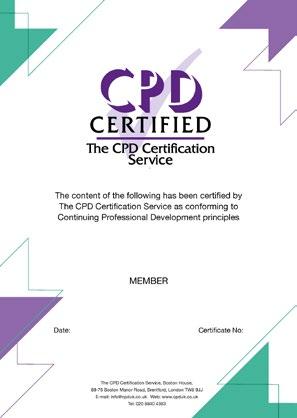



Adobe/Wang Dan
Aesthetic Plast Surg. 2025 Jan;49(2):557-568. doi: 10.1007/s00266-024-04276-8. Epub 2024 Jul 29. PMID: 39078426.
Rahman E, Webb WR, Rao P, Abu-Farsakh HN, Upton AE, Yu N, Garcia PE, Ioannidis S, Sayed K, Philipp-Dormston WG, Najlah M, Carruthers JDA, Mosahebi A.
Exosomes, diminutive extracellular vesicles, are integral to intercellular communication, harbouring potential for applications in regenerative medicine and aesthetic interventions. The field, however, grapples with the complexities of harmonising exosome characterisation protocols and safeguarding therapeutic integrity.
I n this scholarly overview, systematic adherence to the Cochrane Collaboration and Preferred Reporting Items for Overviews of Reviews guidelines was observed, scrutinising the congruence of exosome-related therapies with the Minimal Information for Studies of Extracellular Vesicles standards delineated by the International Society for Extracellular Vesicles, alongside criteria set forth by the International Society for Cell Therapy and the International Society for Stem Cell Research. A meticulous search strategy spanning databases such as PubMed, Scopus, Web of Science, EMBASE, and Cochrane database was employed to encapsulate studies pertinent to the isolation, characterisation, and functional assessment of exosomes.

The initial search yielded 225 articles, of which 17 systematic reviews were selected based on predefined criteria, encompassing 556 primary studies. Notwithstanding the acknowledged therapeutic promise of exosome modalities, the synthesis illuminated a prevalent deficiency in adherence to established reporting and experimental benchmarks, notably in exosome source characterisation and bioactive constituent delineation. A critical appraisal employing the AMSTAR-2 tool underscored a pervasive shortfall in methodological rigour.
This review accentuates the imperative for stringent methodological standardisation within exosome research to fortify the validity and reproducibility of empirical findings. Amidst the burgeoning therapeutic optimism, the discipline must rectify methodological disparities and comply with regulatory mandates, ensuring the ethically sound and scientifically robust advancement of exosome-based therapeutic modalities.
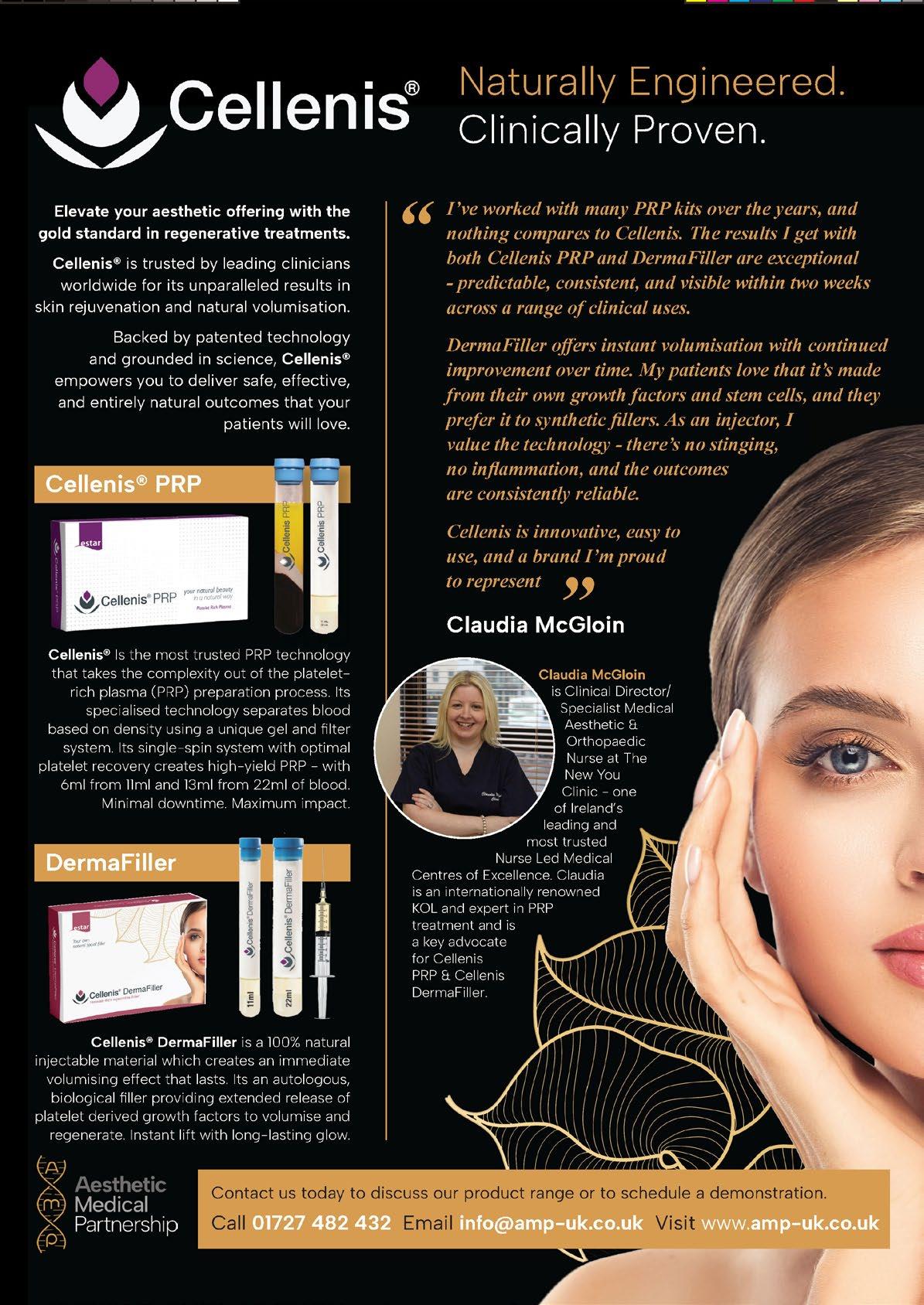

When it comes to aesthetic treatments, skin rejuvenation remains one of the most sought-after procedures. As clients increasingly look for solutions to restore youthful, glowing skin, the demand for safe, effective, and minimally invasive treatments continues to rise. One revolutionary device that meets these expectations is Tixel.
Tixel is a state-of-the-art device that uses Thermo-Mechanical Action (TMA) technology to rejuvenate the skin. Unlike traditional laser treatments, Tixel does not use laser energy or needles, making it a versatile and gentler option for patients seeking noticeable improvements with minimal discomfort.
By delivering controlled thermal energy through a medical-grade titanium tip, Tixel creates micro-channels in the skin, triggering a natural healing response. This stimulates collagen production, improves skin texture, reduces fine lines, and diminishes pigmentation, all while maintaining the integrity of the surrounding tissue.

One of the primary benefits of Tixel is its versatility and efficacy across various skin concerns. It is suitable for:
• Fine lines and wrinkles
• Pigmentation and sun damage
• Acne scars
Loose or sagging skin
Overall texture improvement
Additionally, Tixel is ideal for treating delicate areas often challenging to address, such as the periorbital region (around the eyes), neck, and décolletage. With adjustable settings, practitioners can tailor treatments to suit individual skin types and conditions, offering either ablative or non-ablative options depending on the desired outcome.
Tixel treatments offer minimal downtime compared to traditional resurfacing techniques. Most clients experience mild redness and swelling that typically subsides within a few hours to a day. This makes it an
excellent choice for clients seeking effective rejuvenation without the extended recovery time associated with more aggressive treatments.
As clinics and practitioners look for innovative solutions to meet the evolving needs of their clients, Tixel stands out as a cutting-edge technology that bridges the gap between efficacy and patient comfort. Its versatility and impressive results make it an invaluable addition to any aesthetic clinic looking to enhance its skin rejuvenation offerings.
By investing in Tixel, clinics can provide a transformative treatment experience that delivers noticeable improvements with minimal disruption to clients’ daily lives.
To learn more about Tixel or to book a discovery call with Smart Group Medical, the UK distributor of Tixel, visit their website at www.smartgroupmedical.co.uk or contact them directly at hello@smartgroup-medical.co.uk Discover how Tixel can transform your clinic’s offering today!
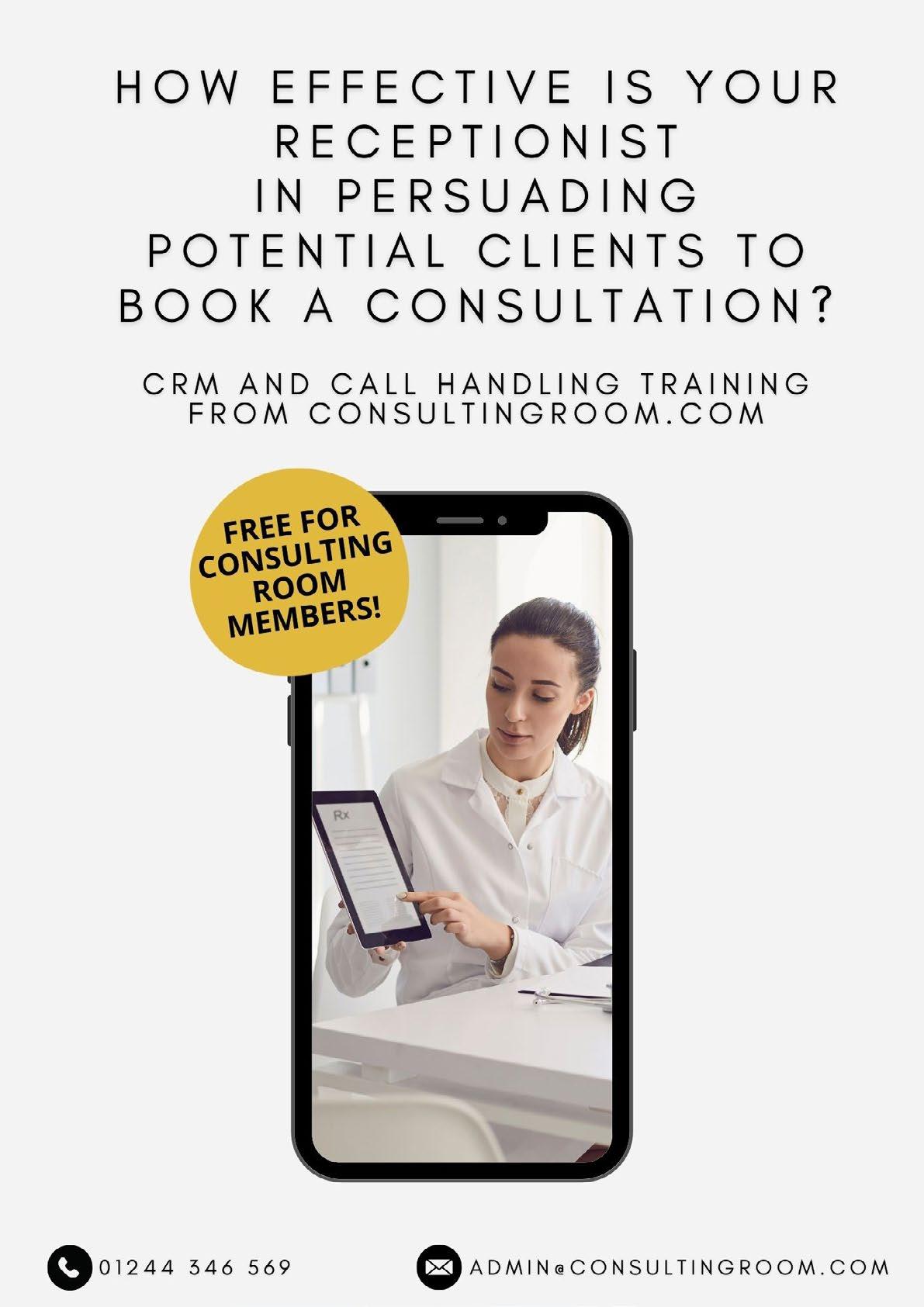
The healthcare system is under relentless pressure from overloaded GP surgeries to stretched consultant clinics, and the signs of strain are everywhere. As a consultant dermatologist, I can see up to 40 patients daily. It’s a figure that underscores the immense demand and limitations of a system trying to keep up. In contrast, I can assess 40 moles in just two hours thanks to Map My Mole. This kind of innovation doesn’t just promise convenience, it delivers real, scalable relief to practitioners and patients alike.
This isn’t just about streamlining skin cancer screening. It’s about rethinking our engagement with early detection, prevention, and patient autonomy. Map My Mole is the UK’s first app to combine advanced digital technology with consultant-led dermatological expertise, offering expert-assessed skin cancer screening without the need to step into a GP surgery. It empowers individuals to take control of their skin health and enables clinicians to provide a faster,
smarter option for patients without compromising the quality of care.
We’re actively looking to collaborate with medics and aesthetic clinics across the UK who are on the frontlines of patient interaction. By offering Map My Mole as a trusted service, effectively a digital “prescription”, professionals can provide patients with a quicker pathway to reassurance or treatment, while freeing up GP and hospital time for those in greater need of face-to-face care.
Early detection is critical. It saves lives, shortens treatment plans, and now, thanks to technology, can save time and resources and even reduce healthcare’s carbon footprint. With outpatient appointments generating significant emissions and healthcare contributing up to 5% of global greenhouse gases, digital-first solutions like Map My Mole
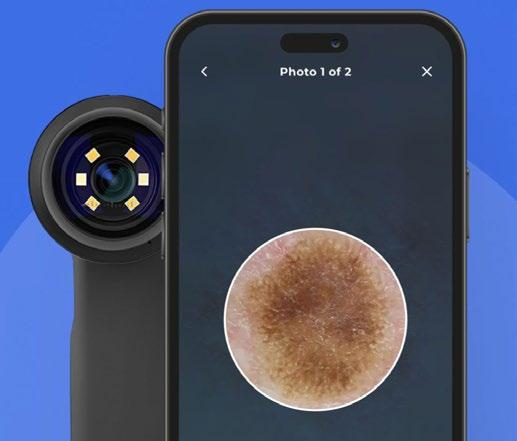


aren’t just innovative but sustainable.
Aesthetic professionals are uniquely positioned to support this shift. You already focus on skin and build trust with your clients. By integrating Map My Mole into your practice, you become part of a movement that protects patients, supports the NHS, and pushes private healthcare into a greener, more efficient future.
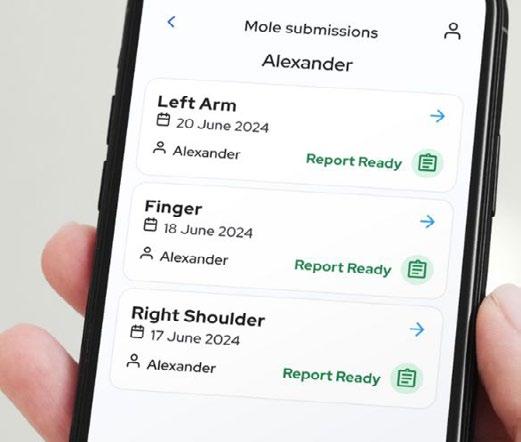
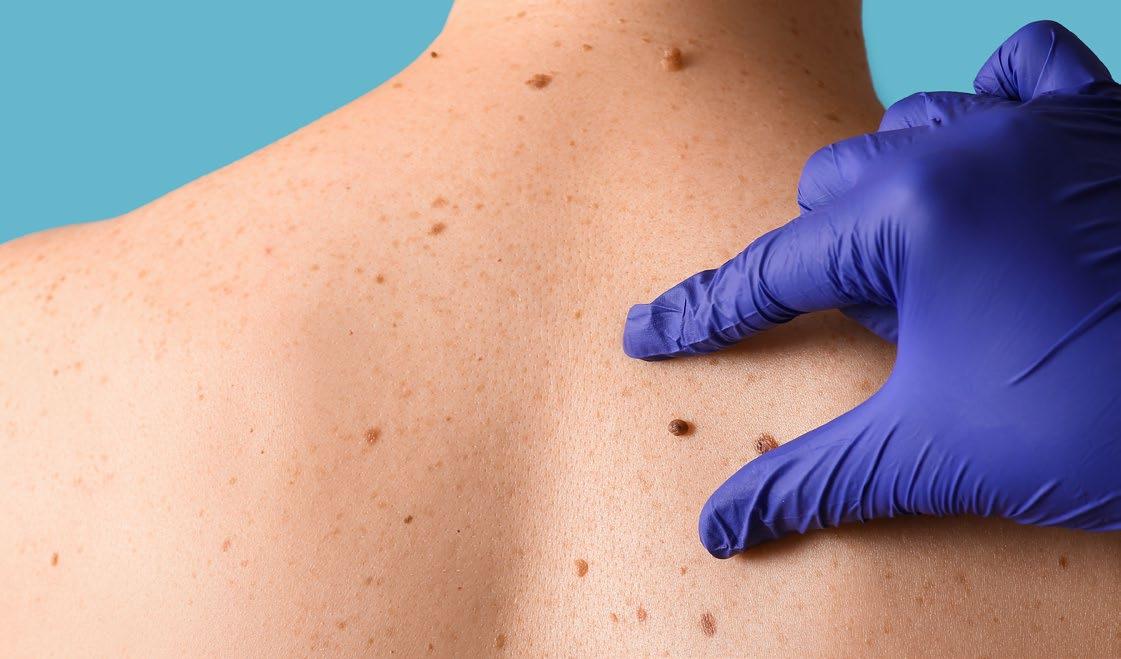
Show your commitment to proactive care. Encourage your patients to get screened by using the Map My Mole service
Here’s how it works:
Using a dermatoscope, you upload clear, high-resolution images of any concerning moles or skin lesions via the app, along with the patient’s medical history. (The scope is provided when you sign up for the
clinic service)
• A qualified consultant dermatologist reviews the images and provides an expert opinion within 48 hours. The clinic and the patient are sent a diagnosis of the lesion.
The patient is advised to follow up with their GP or a specialist if further action is needed. The Map My Mole team will also telephone them regarding the next steps.
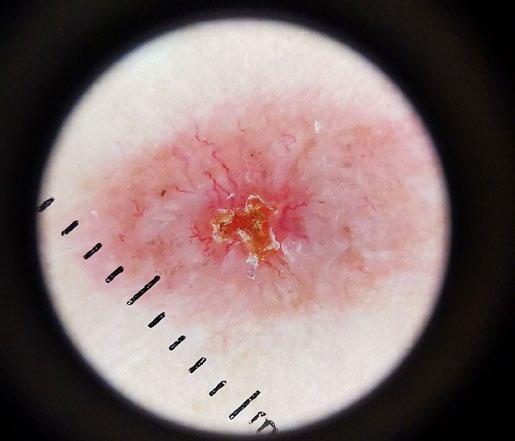
The process is fast, reliable, and easy to incorporate into everyday practice, whether you bring it up during appointments or display information in your waiting area.
As a participating clinic, you’ll also be featured on the Map My Mole provider directory, making it even easier for patients to find and trust your support. Something has got to give. Let’s make it the status quo, not the standard of care.
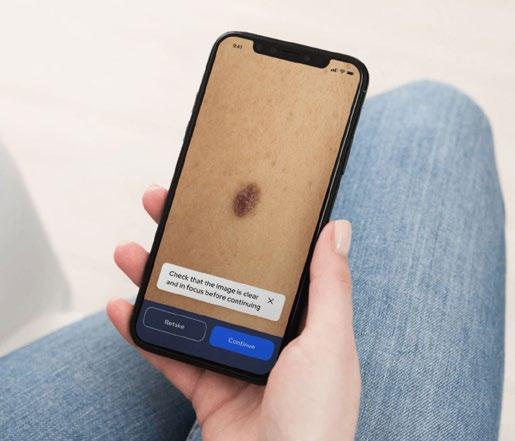

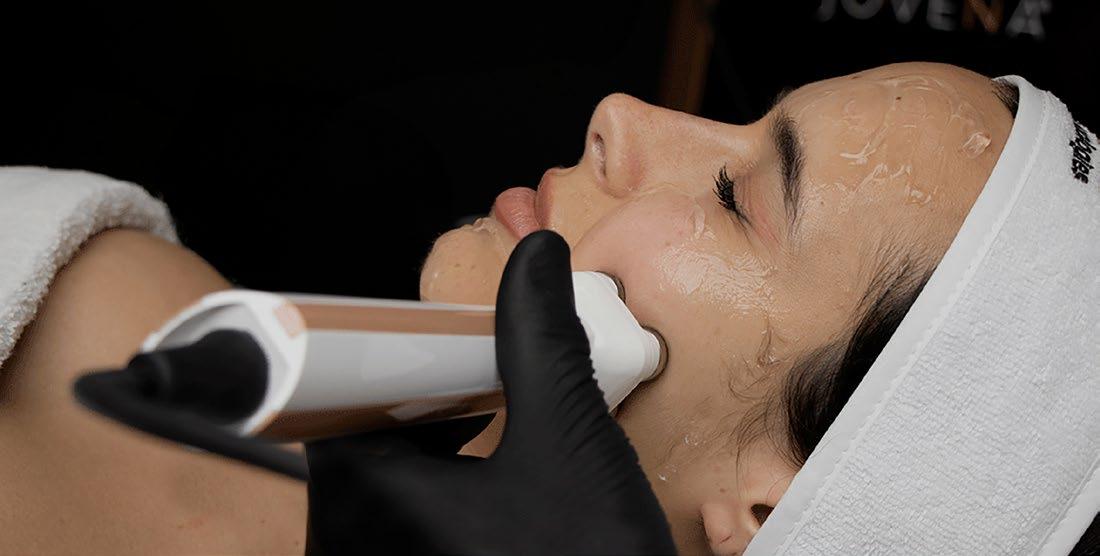
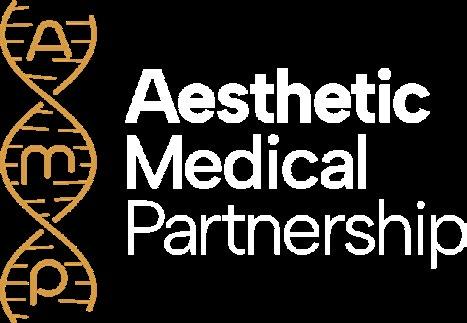
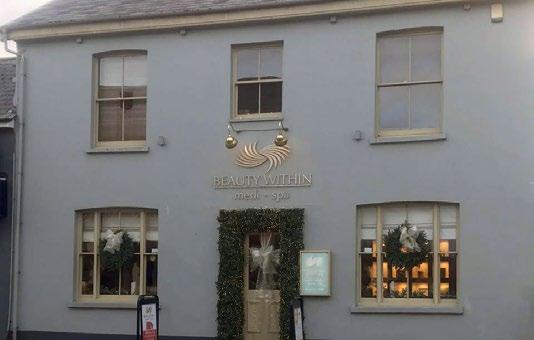
How AMP and the Elevate Event model are transforming clinic launches across the UK and Ireland
For aesthetic clinics looking to stay ahead of the curve with innovative, results-driven treatments, FaceSTIM by Jovena is rapidly becoming the go-to solution for noninvasive facial regeneration. Distributed exclusively in the UK and Ireland by Aesthetic Medical Partnership Ltd

(AMP), FaceSTIM doesn’t just offer outstanding clinical outcomes – it comes with a proven business model to help clinics maximise their investment from day one.
Founded by industry veterans Martyn Roe and Paul Simmonds, AMP has built its reputation on a simple philosophy: “We only succeed if our partners succeed, and they only succeed if their patients are happy.”
With deep expertise in clinic operations, distribution, and regenerative medicine, AMP offers far more than a standard supplier relationship. Their collaborative approach includes hands-on support, advanced training, and powerful launch strategies like the Elevate Event – a promotional model that has already delivered extraordinary results for clinics across the UK.
FaceSTIM: The fast track to facial fitness and business growth
“FaceSTIM isn’t just a treatment — it’s a new way of thinking about non-surgical facial rejuvenation,” says Martyn Roe, co-founder of AMP. “And the Elevate Event shows clinics how to turn that excitement into profit from day one.”
FaceSTIM is part of the Jovena platform — a next-generation device that combines regenerative technologies, including diathermocontraction, Fractional Plasma® resurfacing, and minimally invasive microsurgical options. It offers flexibility, fast results, and zero consumable costs — all of which make it ideal for clinics that want high-performance results without inflated overheads.
• 30-minute treatments with immediate visible effects
Engages all facial muscle fibres for real lifting
No pads, gels, or costly consumables
Painless, non-invasive, and easy to integrate
• Proven client demand and high rebooking rates
For business owners, the numbers are just as attractive. The secret lies in the way AMP helps clinics launch FaceSTIM with impact, through the Elevate Event
When Amanda Moaksom, founder of Beauty Within MediSpa in Cowbridge, first heard about FaceSTIM, she was intrigued by the clinical promise. But it was AMP’s approach to launching the device, with marketing, setup and event support, that sealed the deal.

“The Elevate Event was absolutely phenomenal,” says Amanda. “We were fully booked from 9am to 7pm, and treatment courses are selling like crazy. We took over £35,000 in one day, which combined with the additional sales in the 10 days leading up to the event, means the FaceSTIM has already paid for itself.”
With over 35 years in the industry, Amanda is no stranger to investing in new technologies. But she describes this launch as one of the most successful she’s experienced.
“Martyn and Paul from AMP were incredible. Their help was second to none — from setup and training to helping us plan the day. I can’t recommend FaceSTIM or the AMP team highly enough.”
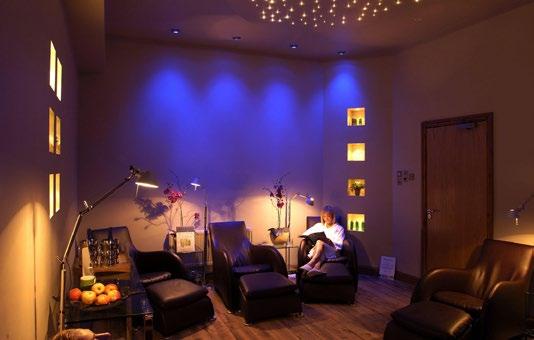
An Elevate Event isn’t your average open day. It’s a tightly managed, invitation-only experience designed to let your best clients experience the FaceSTIM treatment firsthand. Clinics typically charge £50 to secure a slot (often redeemable against treatment packages), and AMP provides everything you need - even an additional machine to double your appointment capacity.
• Pre-booked 30-minute sessions for VIP clients
• On-site support from AMP for smooth delivery
Targeted marketing materials to build excitement
• On-the-day course sales –of ten covering your initial investment
• Ongoing patient rebooking driven by visible results
FaceSTIM offers a treatment experience that sells itself, but the Elevate Event ensures you launch with full clinics and a buzz that lasts.
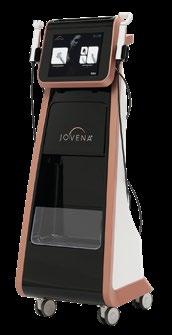
At AMP, the sale is just the beginning. With a focus on regenerative medicine and fair, consumable-free pricing, AMP is redefining what it means to support aesthetic clinics in the UK and Ireland. Their team doesn’t just deliver devices – they deliver strategy, support, and sustained success.
Ready to see what FaceSTIM can do for your clinic? Contact AMP today and discover how an Elevate Event could put you on the fast track to growth.
Call Us 0n: 01727 482 432

Aesthetic Medical Partnership (AMP) is proud to announce the launch of MultiFrax, a categorydefining innovation in aesthetic laser technology. MultiFrax is the world’s first high-powered portable laser to feature dual wavelengths – 1550nm and 1927nm – providing the full clinical performance of traditional systems in a compact, cordless design.
This groundbreaking handheld device offers unparalleled treatment flexibility, enabling practitioners to address concerns such as wrinkles, acne scarring, and sun damage on all skin types. MultiFrax can fire 1550nm or 1927nm Thulium lasers individually or simultaneously using SimulScan technology, so there is no need for multiple passes with each wavelength. MultiFrax targets skin concerns like wrinkles, acne scars and sun damage in a single scan, completely untethered from the wall like laser technology of the past.
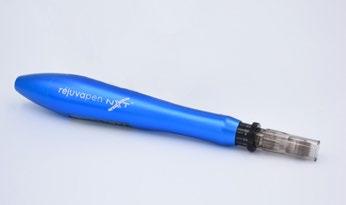
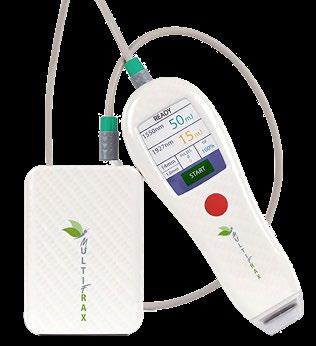
AestheticSource has been appointed the exclusive distributor of Rejuvapen NXT® in Ireland.
Developed by Refine USA, the FDA-cleared Class II medical device offers a new standard in microneedling, combining advanced engineering, user-focused features, and clinically proven results.
At the core of its success is the Tru Vertical® microneedling technique, a precise stamping method that uses a gentle, repeated “light touch” against the skin, rather than side-to-side or circular movements. This allows effective stimulation of collagen and elastin while minimising the risk of trauma, bruising, or discomfort. The result is a treatment that delivers pinpoint bleeding and natural rejuvenation, while maintaining overall skin structure and integrity. Paired with the 6.5cm EXCEL TIPS™ (double the diameter of standard ISO Tips™ and covering four times the surface area), full-face treatment time is reduced to as little as six minutes.
Leading aesthetic and medical device distributor Eden Aesthetics has acquired the distributorship of skincare brand Vital Assist.
Harnessing the power of advanced formulations and cutting-edge ingredients, the Vital Assist range is designed to reverse the natural decline in skin thickness and collagen levels. Created by Dr Don Owen and his team at Owen Biosciences Inc., each product undergoes rigorous testing to ensure optimal efficacy and safety.

With their patented retinoid delivery system, this advanced formulation ensures enhanced stability, superior skin penetration and minimised irritation, marking a breakthrough in skincare innovation. The range integrates these revolutionary retinoids with the latest advancements in peptides, nourishing topical antioxidants and essential skin vitamins to create harmonious synergy.
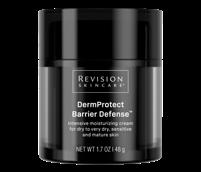
DermProtect Barrier Defense™ is an intensive moisturiser that delivers maximum hydration, replenishes natural lipids, and enhances moisture retention.
Advanced technology goes even deeper to target the source of dryness by resetting and regulating skin’s natural 24-hour cycle to maximise daytime defence and nighttime regeneration, optimising barrier function and rebalancing the microbiome for enhanced skin resilience.
By strengthening the skin barrier and rebalancing the microbiome, DermProtect Barrier Defense™ creates a healthy foundation to complement and maximise the effectiveness of every step in a skincare routine, supporting lasting results for a healthier, more resilient complexion.

Teoxane has launched Active Microscrub, and exfoliating scrub, which works as a hybrid solution to hydrate and strengthen the skin’s barrier whilst removing dead skin cells. Inspired by their ground-breaking dermal fillers technology, Teoxane have extended its unique range of dermocosmetics formulated with its signature ingredients: RHA resilient hyaluronic acid®, a crosslinked form obtained from a patented process to provide optimal skin hydration.
The transforming gel-to-milk texture exfoliant is made with scrubbing grains derived from volcanic glass infused with skin-benefitting minerals and Papain enzyme, a polypeptide that exfoliates the skin whilst accelerating cell turnover. Skin is left smooth and toned, whilst being gentle and suitable for sensitive skin.
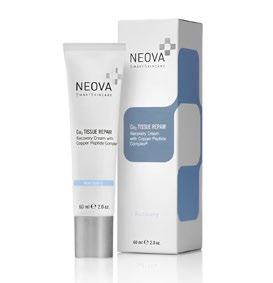
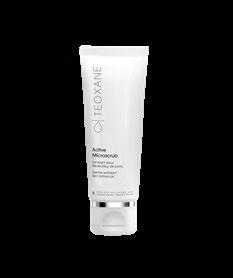
Copper peptides continue to trend in 2025 for their unparalleled ability to boost collagen, enhance elasticity, and deliver deep skin rejuvenation.
Eden Aesthetics showcases NEOVA Cu3 Tissue Repair, a recovery Cream with clinically proven Copper Peptide Complex® and deeply moisturising ingredients that instantly soothe tender skin. It’s suitable for all skin types, even sensitive and post-procedure skin, making it ideal for optimised outcomes after ablative laser resurfacing, medium-deep chemical peels, microneedling or for compromised skin.
At three months, 85% of patients treated with Copper Peptide Complex reported significantly more personal satisfaction with their post-procedure results compared to those in the study who were treated with a different topical.
50% The rate of recovery is accelerated by up to 50% when a moist environment is provided, compared to leaving the wound to dry and allowing a scab to form.
Dr Preema Vig, Medical Director of the renowned Dr Preema London Clinic, has officially introduced the Aura 3D Imaging System into her Park Lane practice, solidifying her commitment to cutting-edge technology and patient-first aesthetic care.
Chosen for its pioneering capabilities in real-time 3D visualisation and treatment planning, the Aura system enables Dr Preema and her team to offer patients a new level of precision, insight, and engagement. As a former GP and aesthetics expert with 20 years in the industry, Dr Preema’s adoption of Aura reflects a wider shift toward hyper-personalised, data-driven treatment journeys.
Known for her natural aesthetic and meticulous, individualised approach, Dr Preema was drawn to Aura for its ability to merge technological innovation with the art of subtle enhancement. With the growing demand for transparency, visual education, and realistic expectations, Aura stood out as a tool to elevate every stage of the patient journey - from first consultation to posttreatment review.
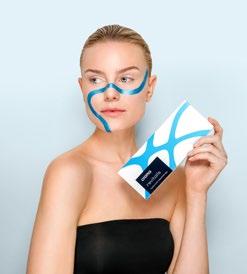
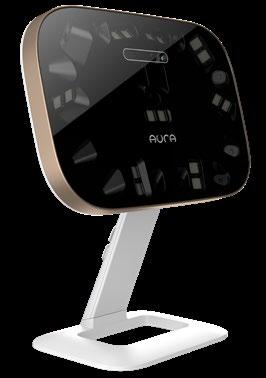
The delicate and lateral orbital and perioral areas often require improvement to address issues such as dryness and loss of elasticity. Croma Revitalis is a non-crosslinked Hyaluronic Acid skin booster that improves elasticity and hydration to expertly revitalise the skin for a more youthful appearance.
Croma’s advanced manufacturing process ensures high molecular weight HA, known for its superior ability to retain moisture, neutralise free radicals, and support wound healing with anti-inflammatory effects. Combined with glycerol, this formula enhances skin hydration, reinforces the skin’s protective barrier, and stabilises HA molecules, boosting their longevity and effectiveness for a brighter, smoother, and more supple complexion.


Aesthetic clinics around the globe are pouring thousands –sometimes millions – into leadership training, staff coaching, and motivational workshops, all in the hope of driving growth and boosting efficiency. Yet, an often-overlooked solution sits right under their noses: their CRM systems.
Despite hefty investments in cutting-edge Customer Relationship Management (CRM) platforms, many aesthetic practices are underutilising these powerful tools. The result? Wasted staff hours, missed revenue opportunities, and an endless cycle of spending on external coaching services that could be significantly reduced –or even avoided – by maximising their existing CRM capabilities.
Modern aesthetic clinic CRMs are designed to streamline operations, automate time-consuming tasks, and deliver insights that drive smarter decision-making. From patient communication and follow-ups to appointment scheduling, marketing automation, and data-driven retention strategies, a well-utilised CRM can be the backbone of a thriving practice.
“Most clinics are only scratching the surface of what their CRMs can do,” says Donna Ofsofke, practice growth strategist, author of Doctors Can’t Sell, and founder of AesthetiCore. “They’re often using them as glorified appointment books, when in reality, these platforms can automate up to 60% of the repetitive tasks that staff are bogged down with daily.”
With over 20 years in the aesthetic industry, Donna has seen a recurring pattern: staff burnout, exhaustion, and frequent

turnover. “Clinics are struggling to retain their teams because staff are overwhelmed, often performing repetitive administrative tasks that could easily be automated through their CRM,” she explains. “This leads to frustration, errors, and eventually burnout, causing high turnover rates and additional recruitment costs.” Understaffing becomes a chronic issue when the workload becomes unsustainable, yet many practices don’t connect the dots between these challenges and the inefficiencies in their systems. By leveraging the automation and workflow capabilities of their CRM, clinics can ease the burden on their staff, allowing them to focus on what they do best: delivering exceptional patient care and experiences.
This is exactly why AesthetiCore was founded. Understanding that clinics can’t afford downtime or disruption during busy clinic hours, Donna and her team work quietly in the background – often after-hours – to optimise CRM systems without interfering with the day-to-day flow of business.
“We operate under the guise of night,” Donna says. “Our mission is to make the improvements and implement AI-driven innovations while clinics are closed, so staff walk in the next morning to a system that works harder, smarter, and more efficiently for them.” AesthetiCore doesn’t just streamline and clean up CRM processes; it integrates advanced AI where applicable. This includes automated patient reactivation campaigns, intelligent follow-ups, data-driven marketing workflows, and predictive analytics that help clinics stay ahead of patient needs. The result? Less manual effort, more patient engagement, and a measurable boost in revenue and retention.
When a clinic fails to use its CRM to its full potential, inefficiencies pile up. Staff spend hours manually confirming appointments, sending reminders, and managing patient records. Meanwhile, managers scramble for insights on KPIs like patient retention and revenue per appointment – data that could be automatically reported and acted upon with an optimised system.
Instead of tapping into the power of their CRM, many clinics spend heavily on leadership coaching to solve what they perceive as “people problems, it’s often a systems problem. Without efficient, enhanced processes in place, no amount of motivational seminars will reduce staff burnout or improve productivity.
Beyond time savings, CRMs, when optimised, can drive significant revenue gains. Automated follow-ups on treatment packages, reactivation campaigns for lapsed clients, and personalised marketing can all boost patient lifetime value. Clinics that fail to use these features are leaving money on the table – and frequently pouring it into external services that offer only shortterm fixes.
“An optimally used CRM can reduce patient no-shows by 40%, increase rebooking rates, and dramatically improve the patient experience,” Donna notes. “But instead of investing in the system they already have, many clinics spend on leadership retreats, coaching programs and even additional staff, that address the symptoms, not the root cause.”
For clinics serious about scaling sustainably, it is time to shift focus. Investing in CRM optimisation and AI-driven workflows – without disrupting regular operations – can be a significant change. Not only will staff spend less time on administrative tasks, but they will also be freed up to focus on high-value interactions with patients, boosting satisfaction, loyalty, and bottom-line results.
After two decades working alongside aesthetic clinics, Donna is confident about one thing: success is not about working harder; it is about working smarter. “The clinics that thrive are the ones that embrace technology to support their teams and elevate the patient experience,” she says. “At AesthetiCore, we make it happen quietly in the background – so you wake up to a better business.” For aesthetic clinics looking to simplify operations, reduce burnout, and unlock hidden revenue, the smartest move may not be another seminar or coaching session. It’s already sitting in the software they log into every day. AesthetiCore makes sure it works for them.
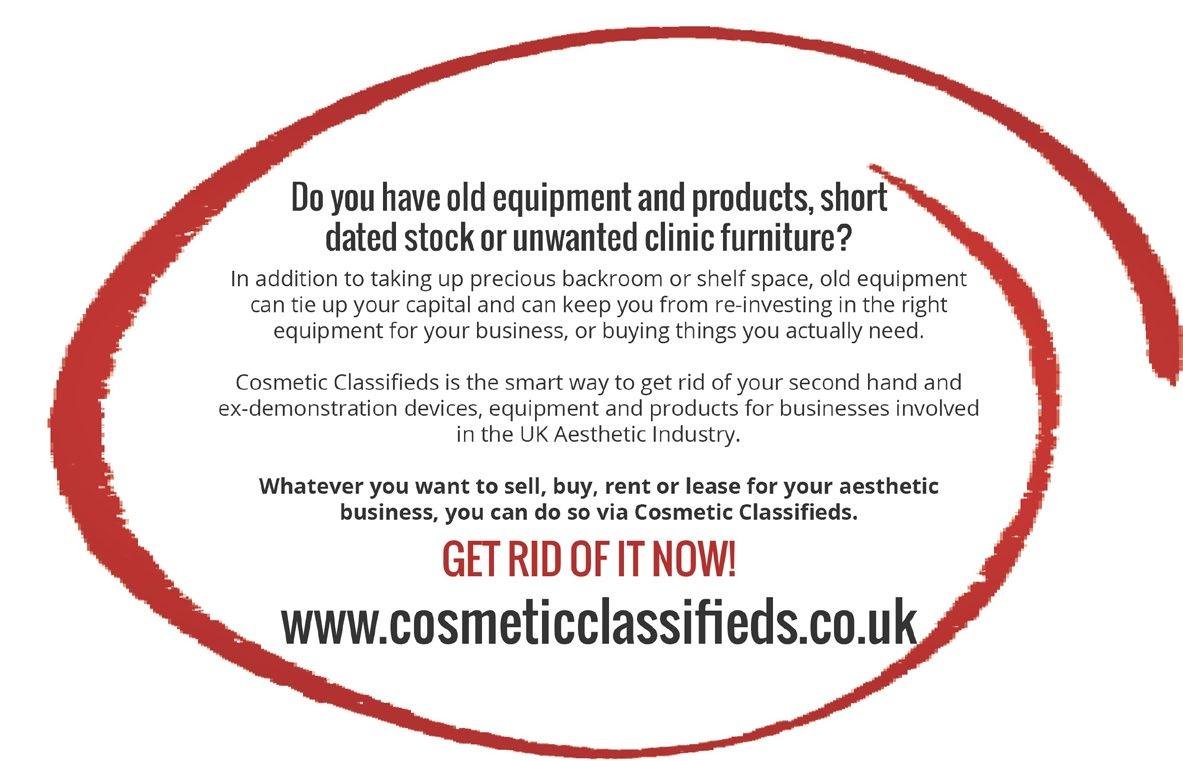


All the training course listed below and more can be found on www.cosmetictraining.co.uk
Any time | Flexible online access
In this exclusive course, Richard Gibbons from Boost My Customers shows you how to get on the social media ladder.
Learn how to turn consultations into profitable sales with ConsultingRoom.com’s CPD-certified therapist training. Converting consultations effectively can boost your clinics revenue and save marketing expenses. Empower your therapists and aestheticians to make your clinic more profitable by creating lasting customer relationships. Don’t miss out on potential earnings; invest in your staff now.
Anytime Online | Consulting Room Academy
Want to convert more consultations into profitable sales? Teach your therapists and aestheticians how to convert more consultations into sales with our CPD-certificated therapist training. FREE for ConsultingRoom.com Members.
Anytime Online | Consulting Room Academy
This online course focuses on one of the most overlooked areas of clinic success — how your team handles incoming calls and client communications. Missed calls are missed opportunities, and this course reveals how small improvements can lead to significant revenue growth and stronger client retention.

